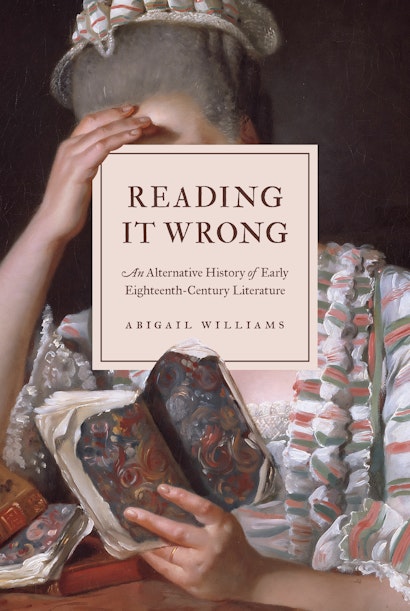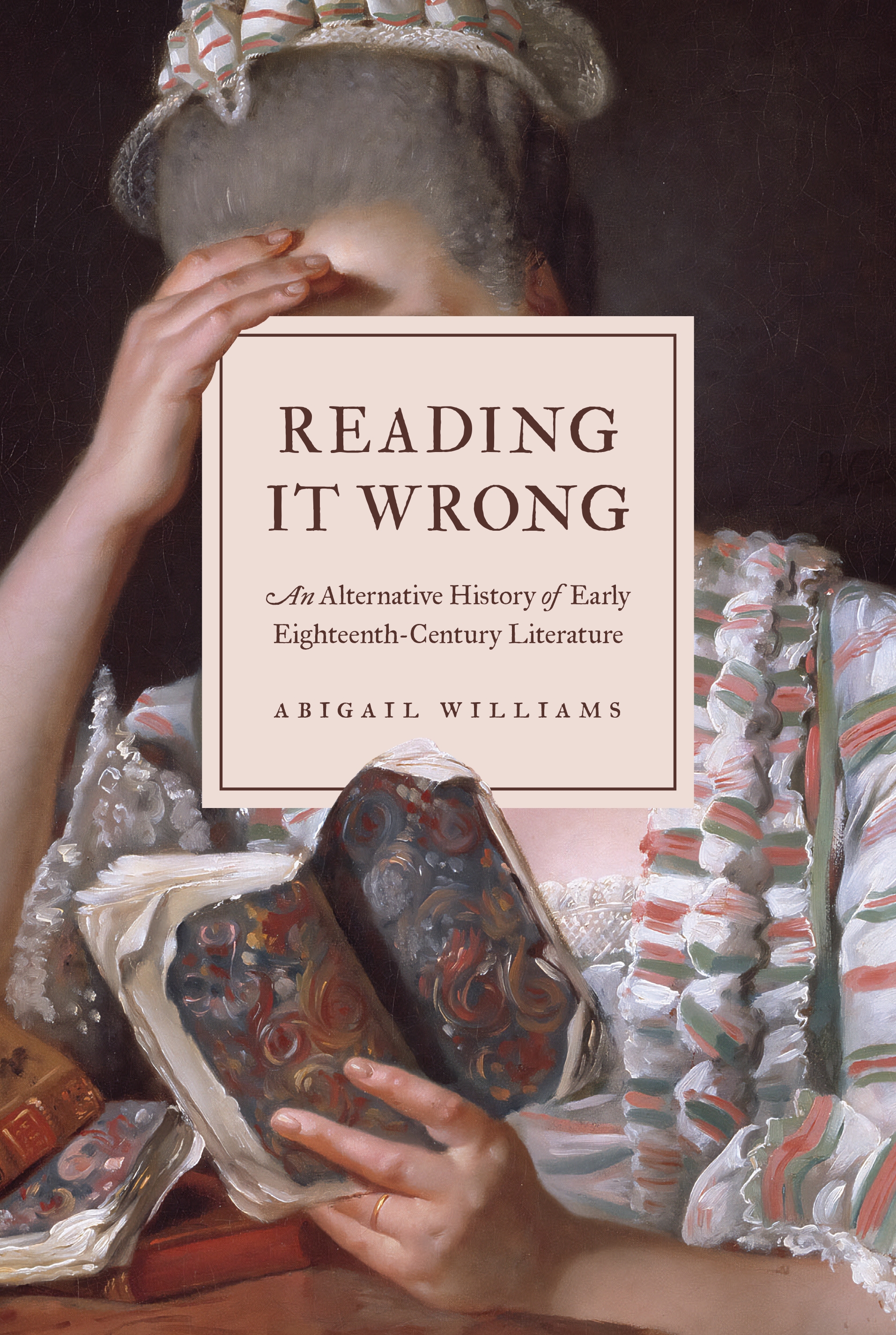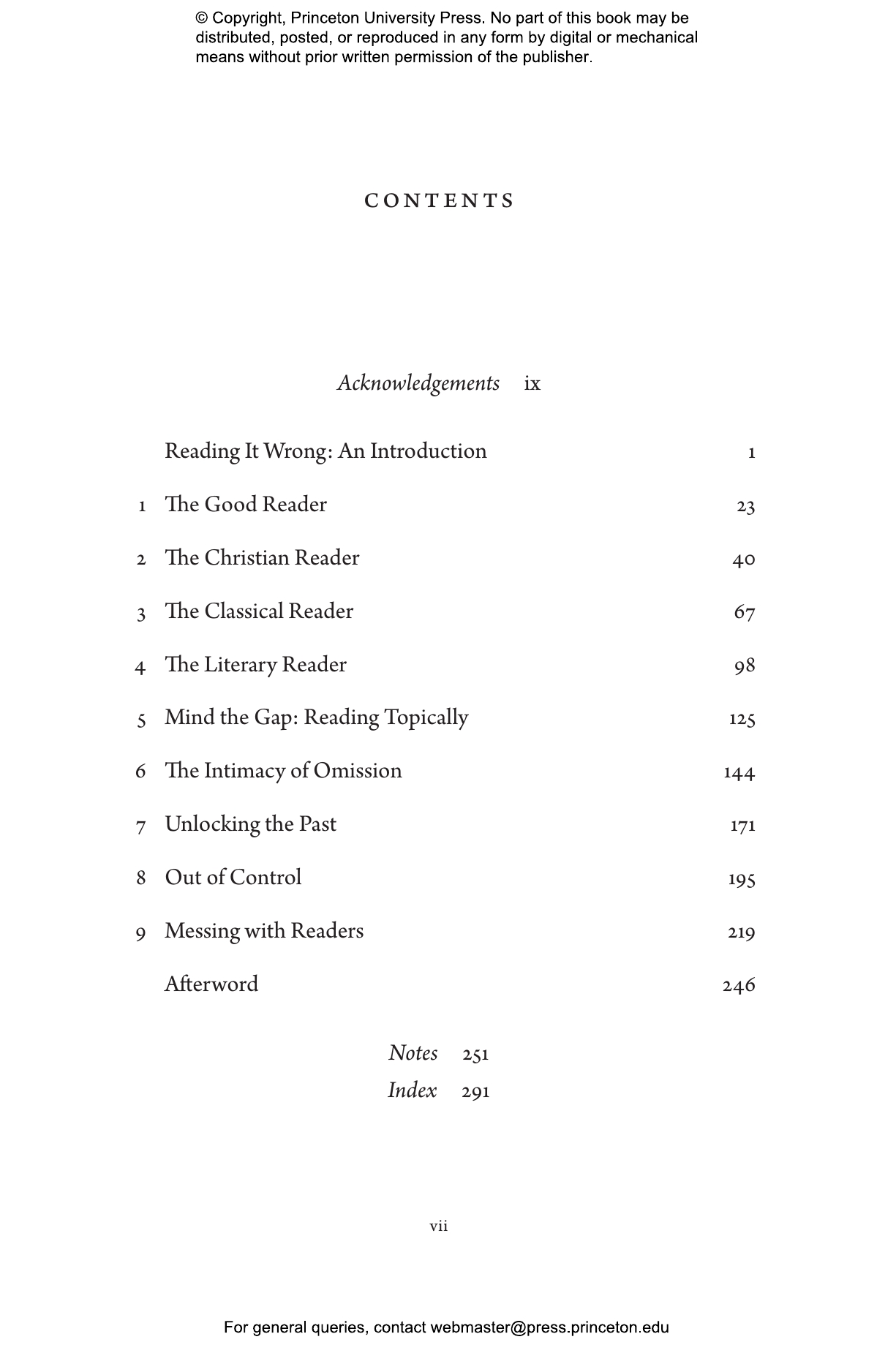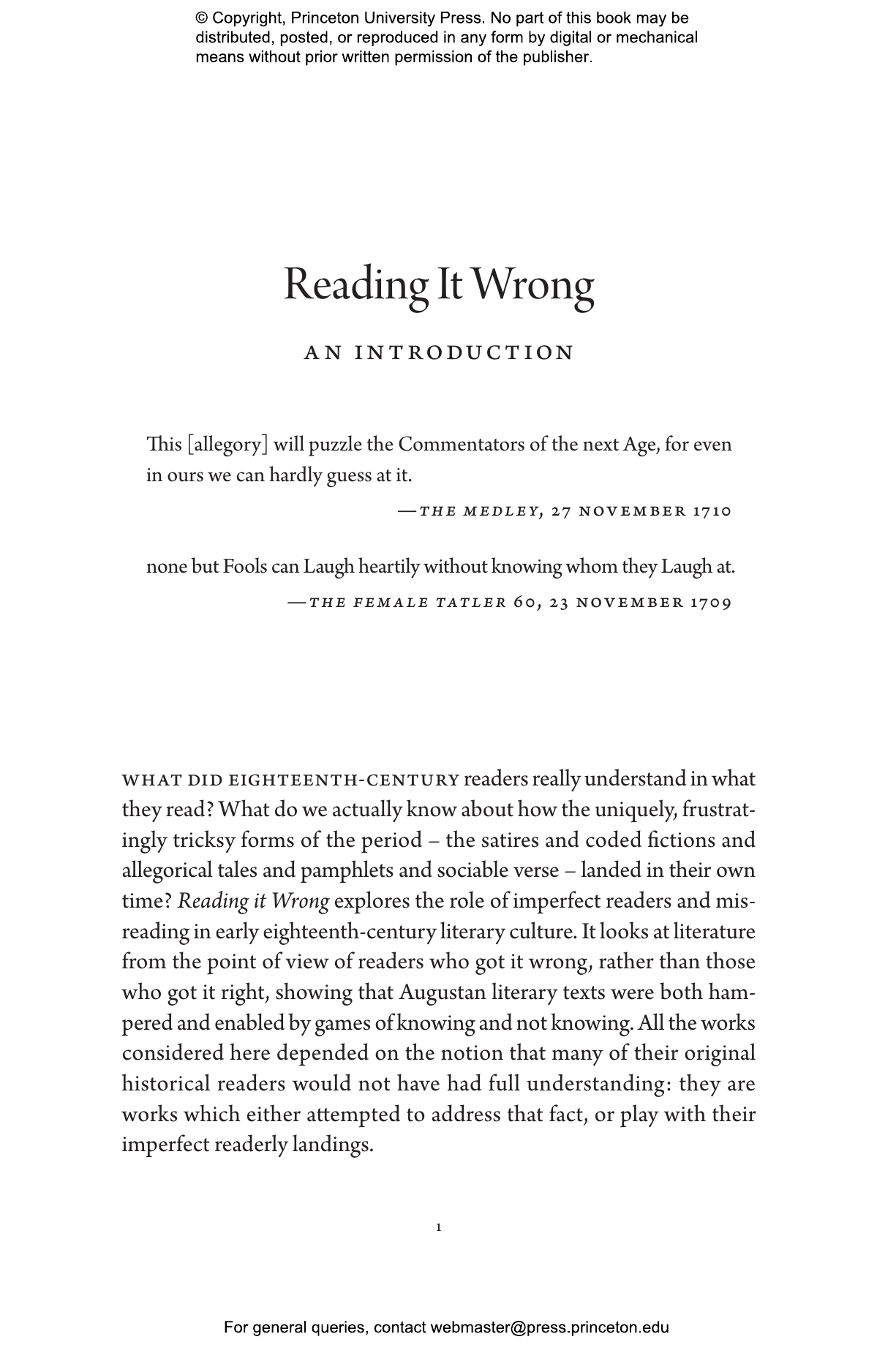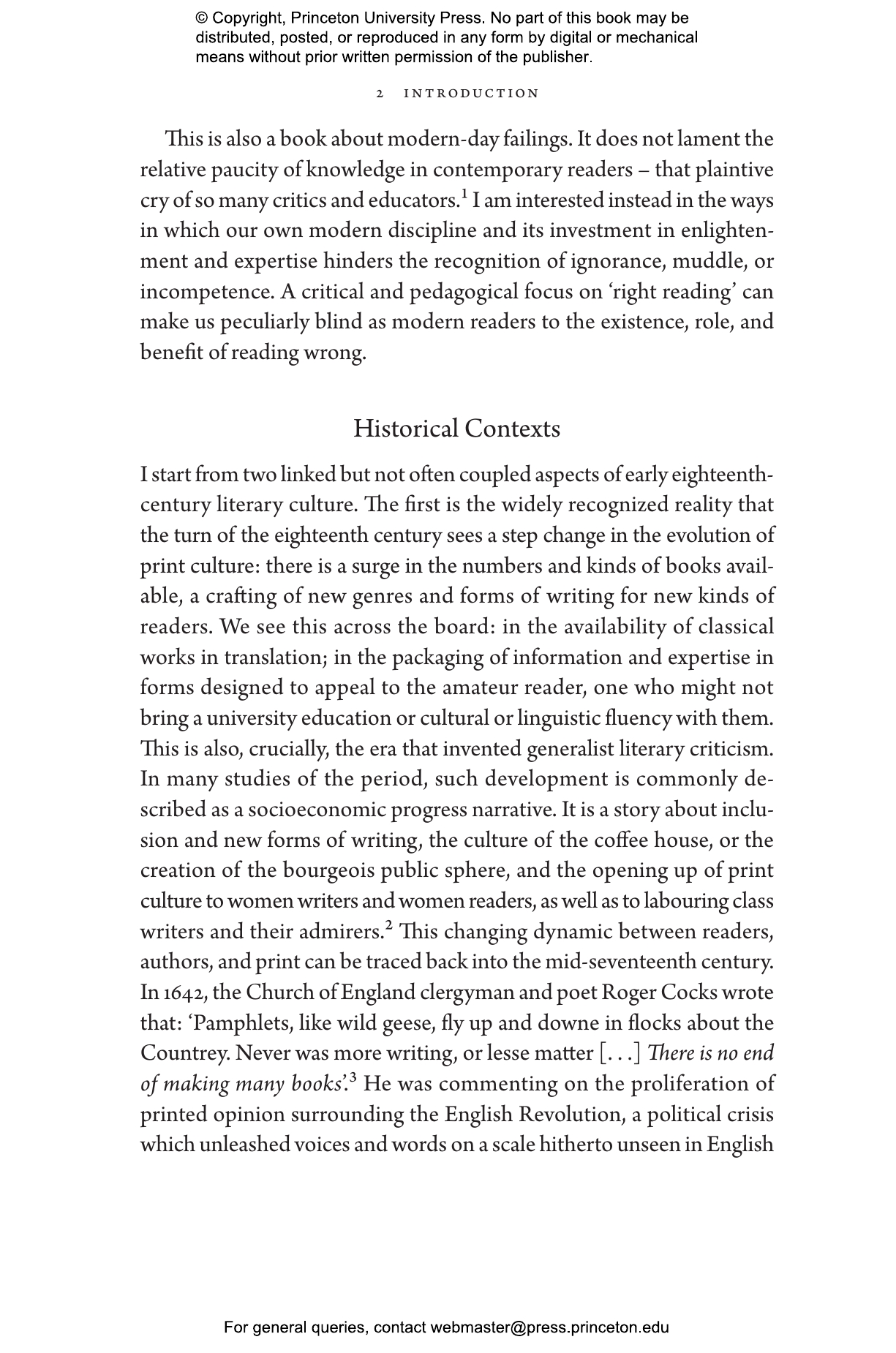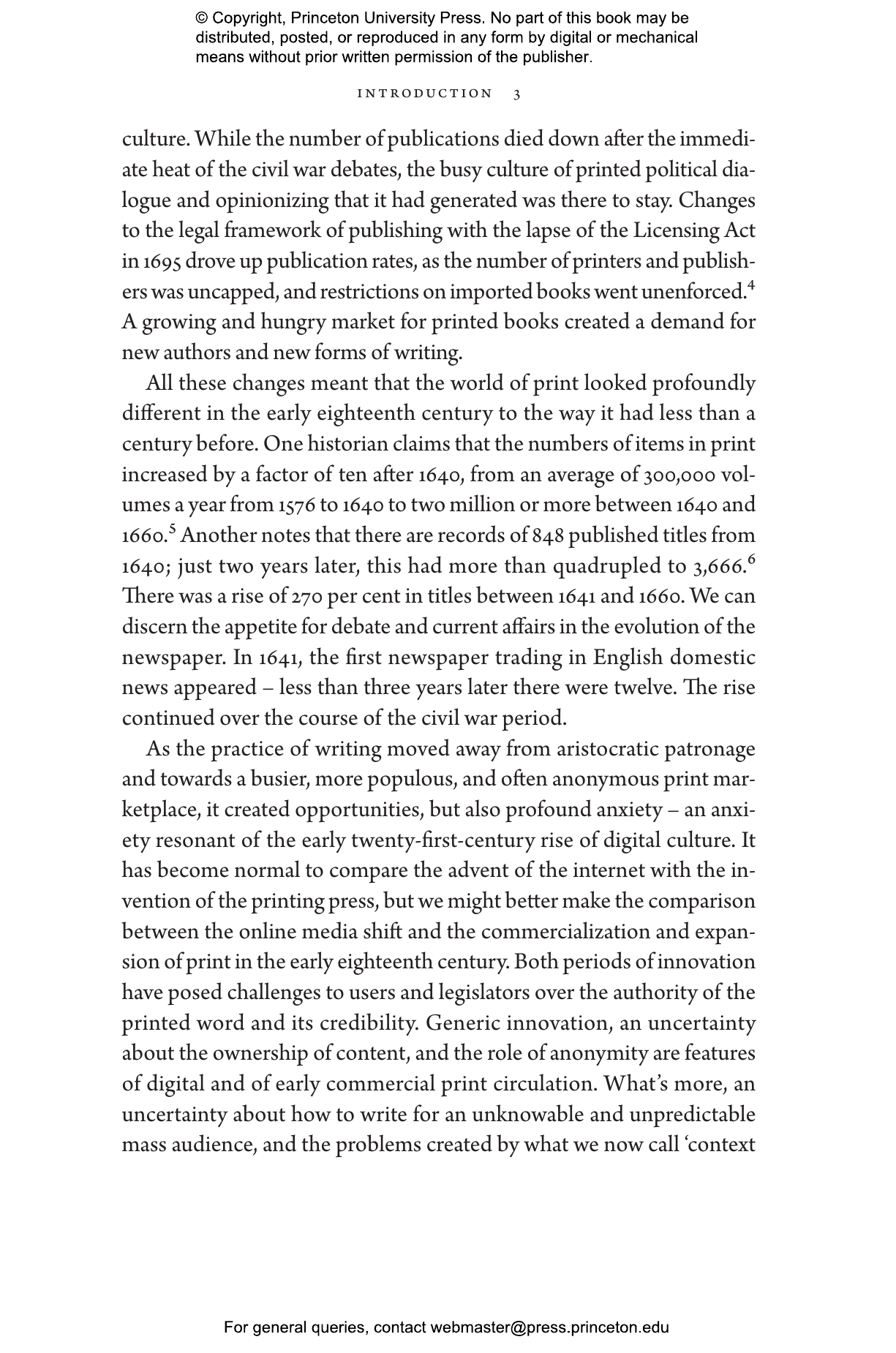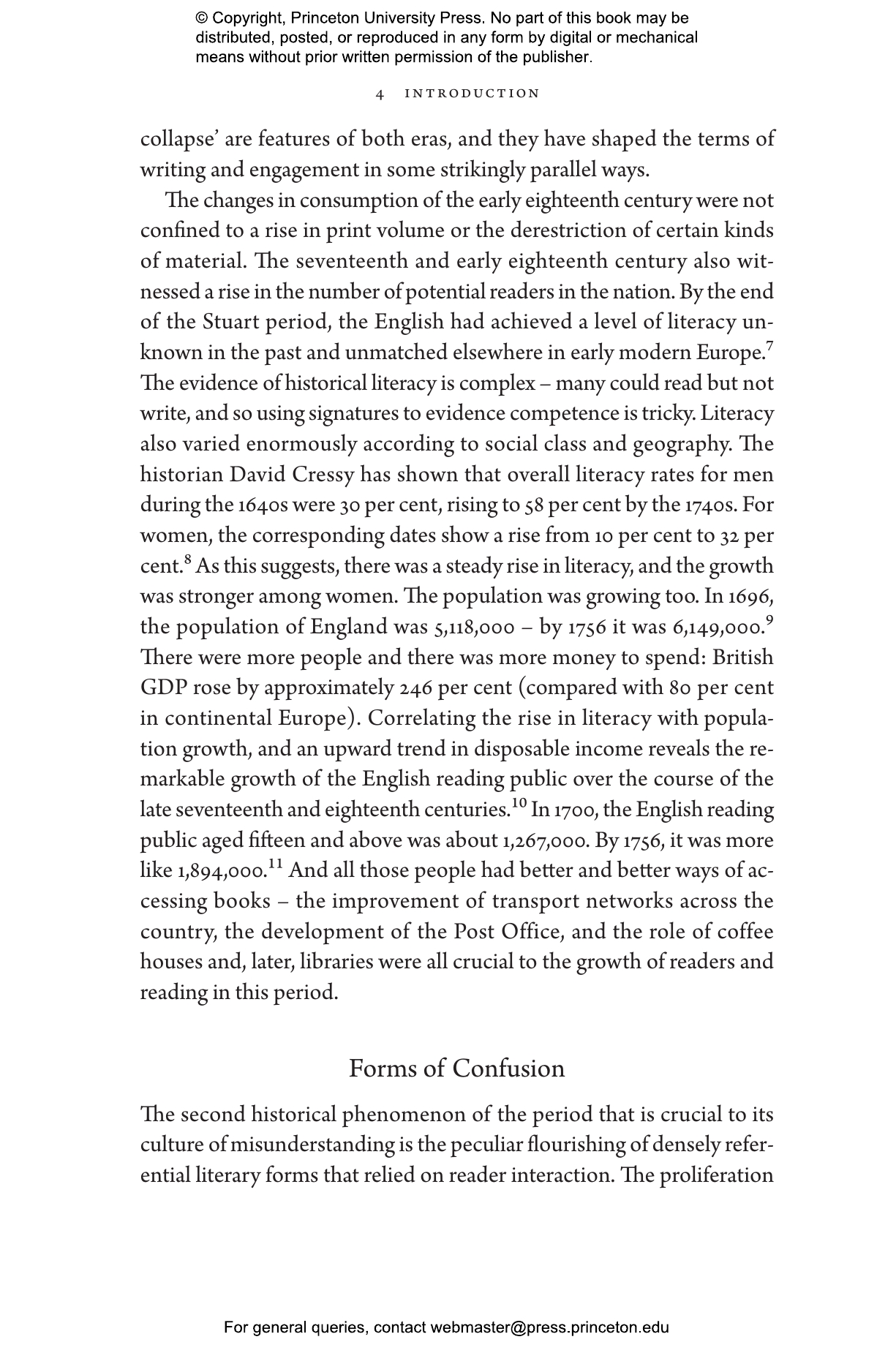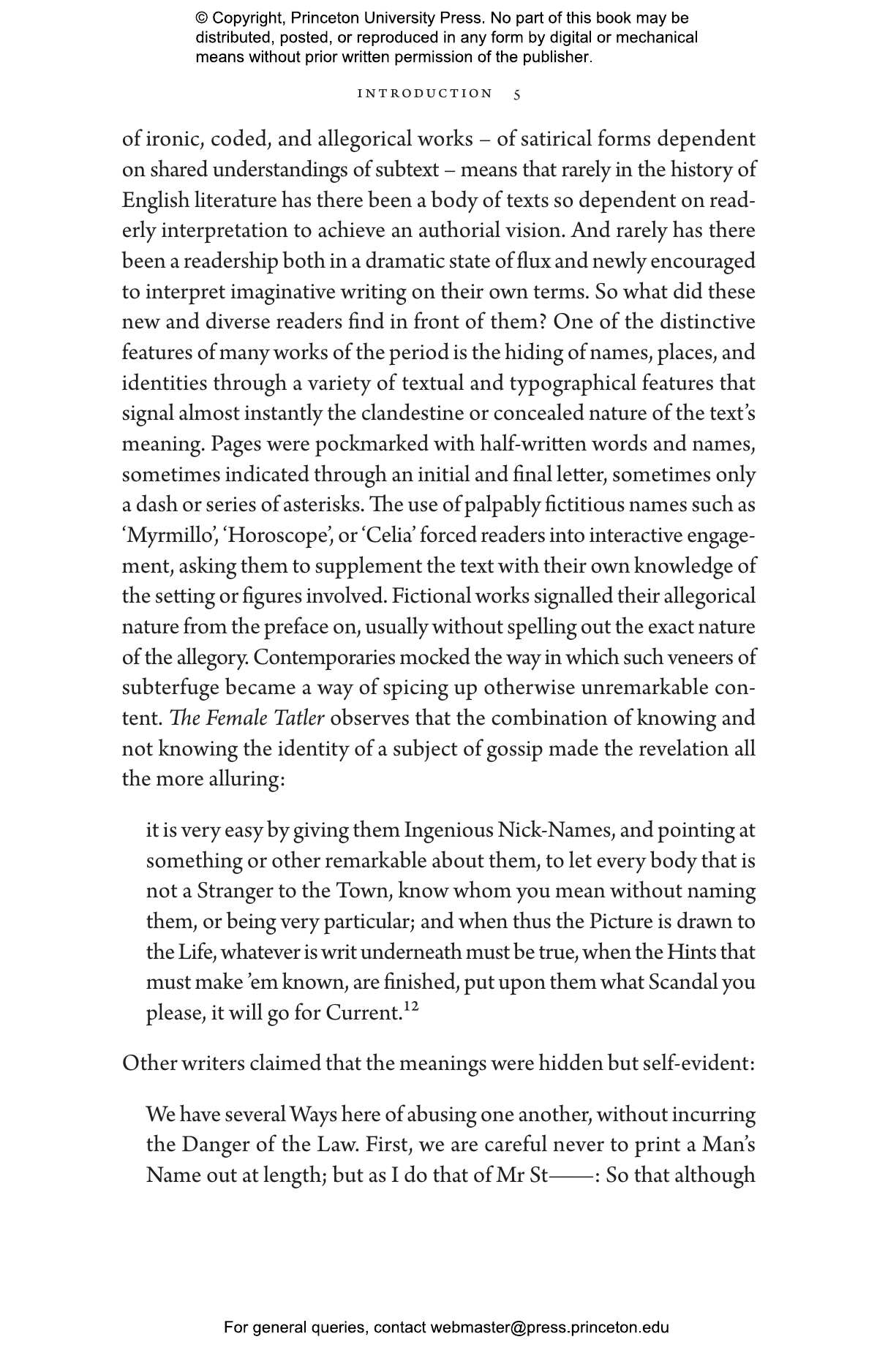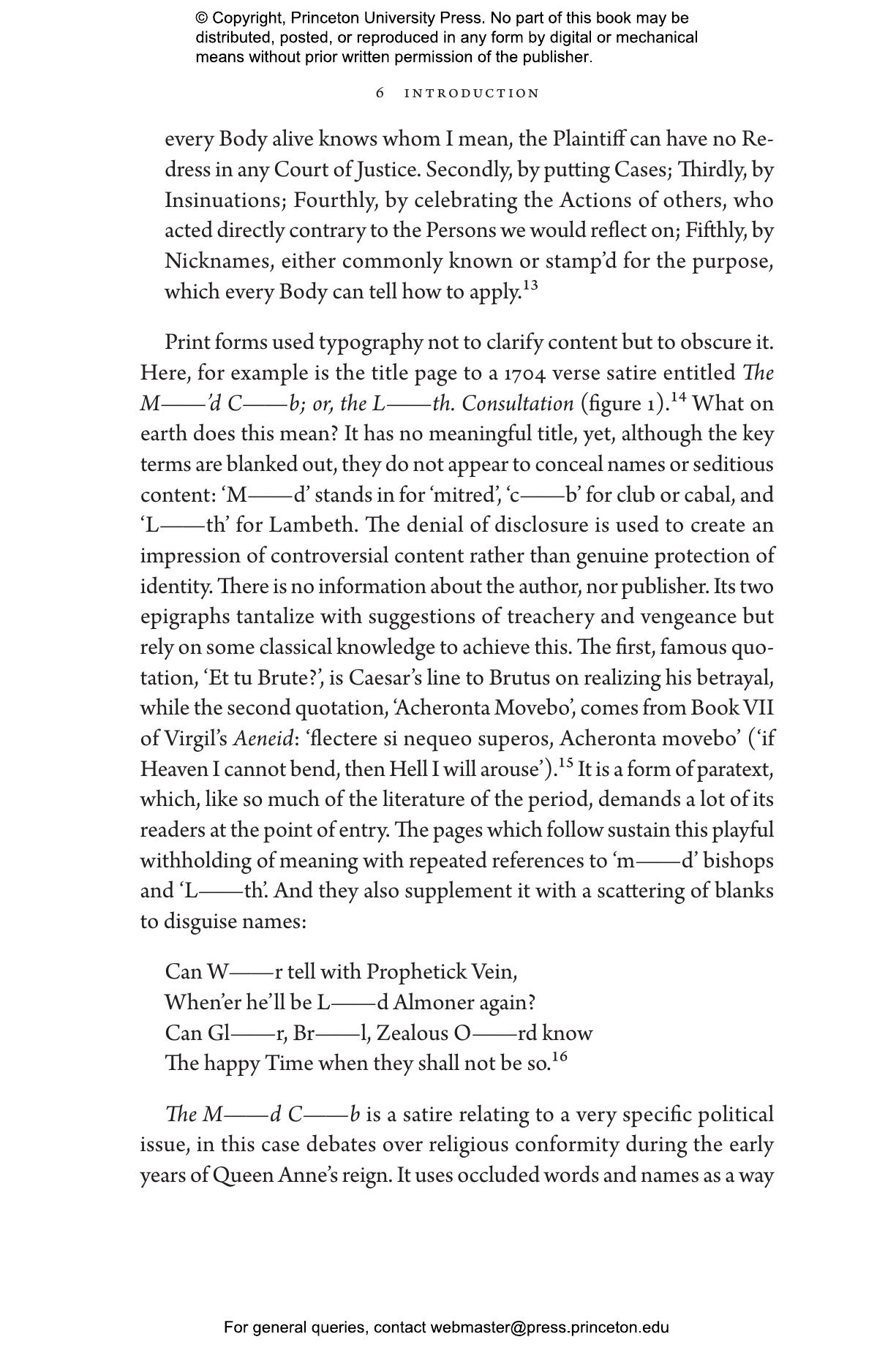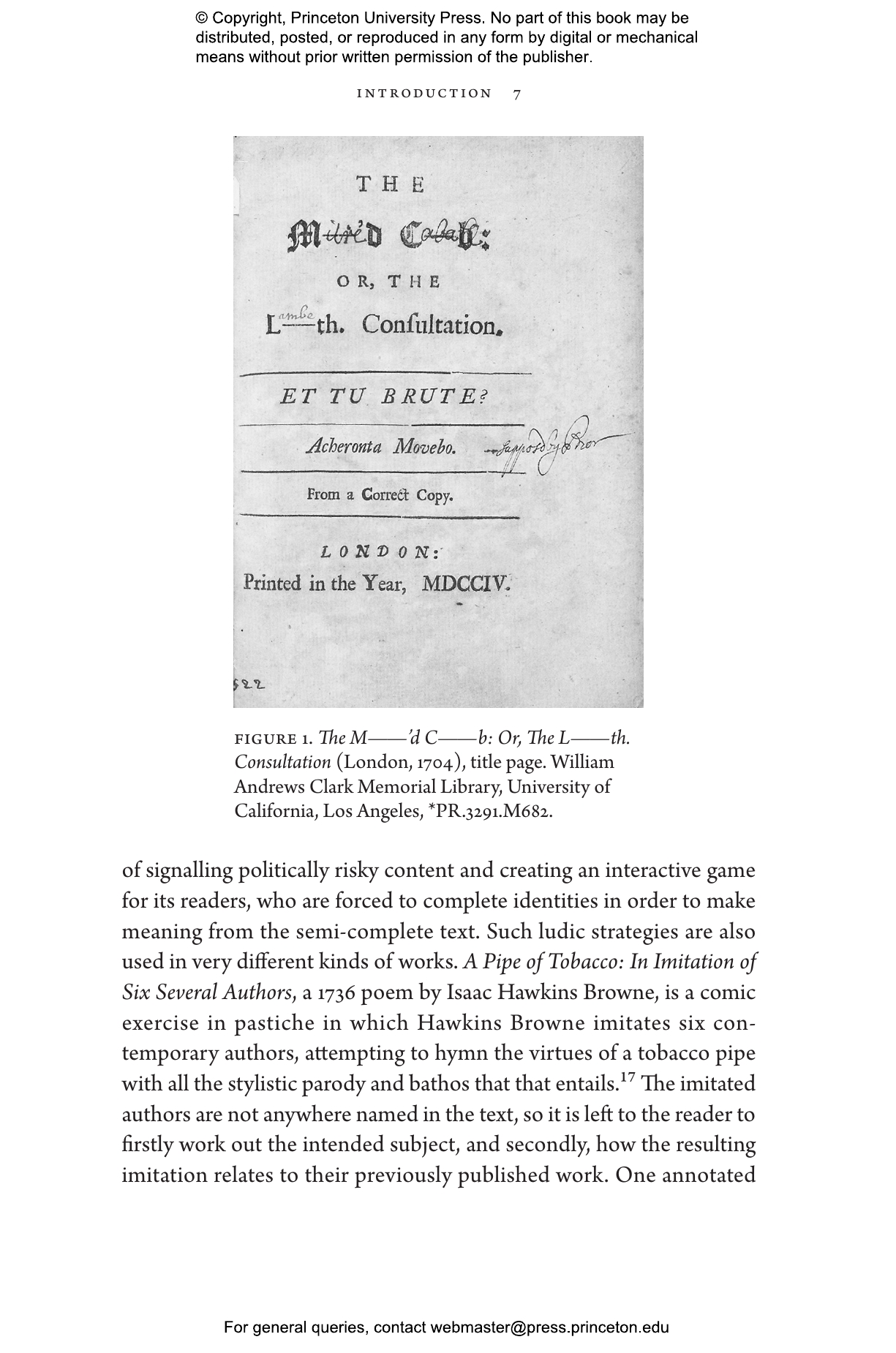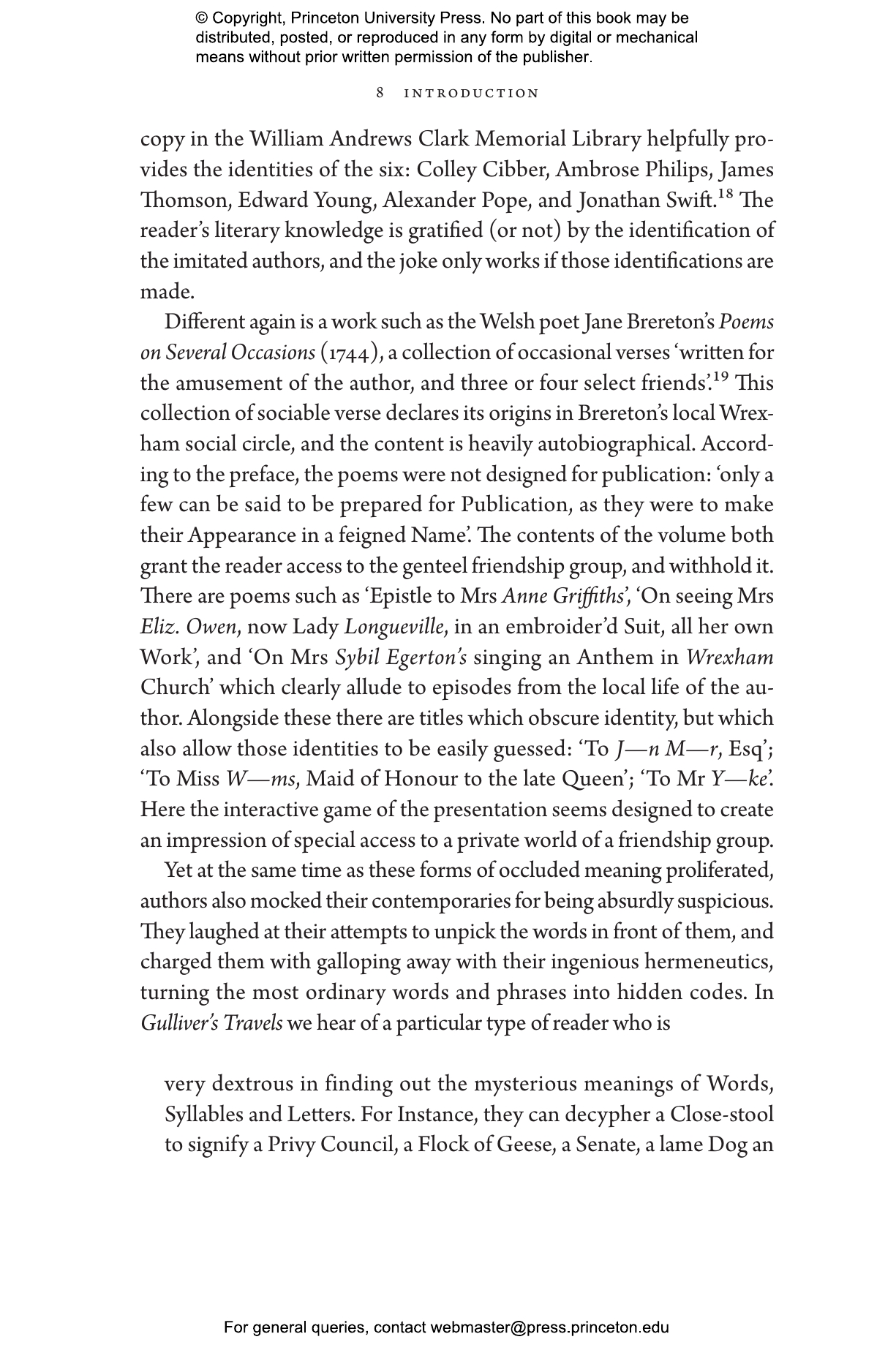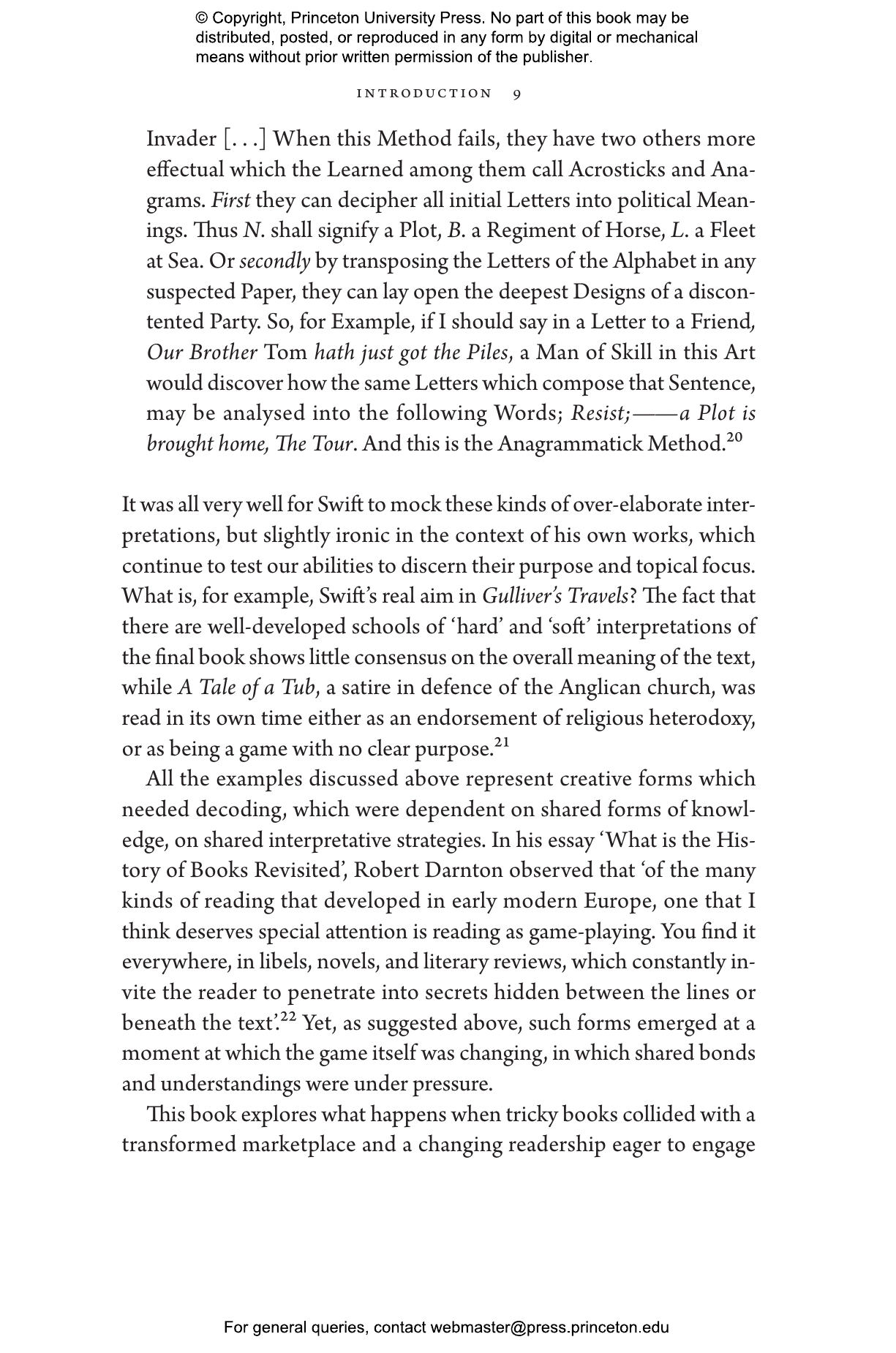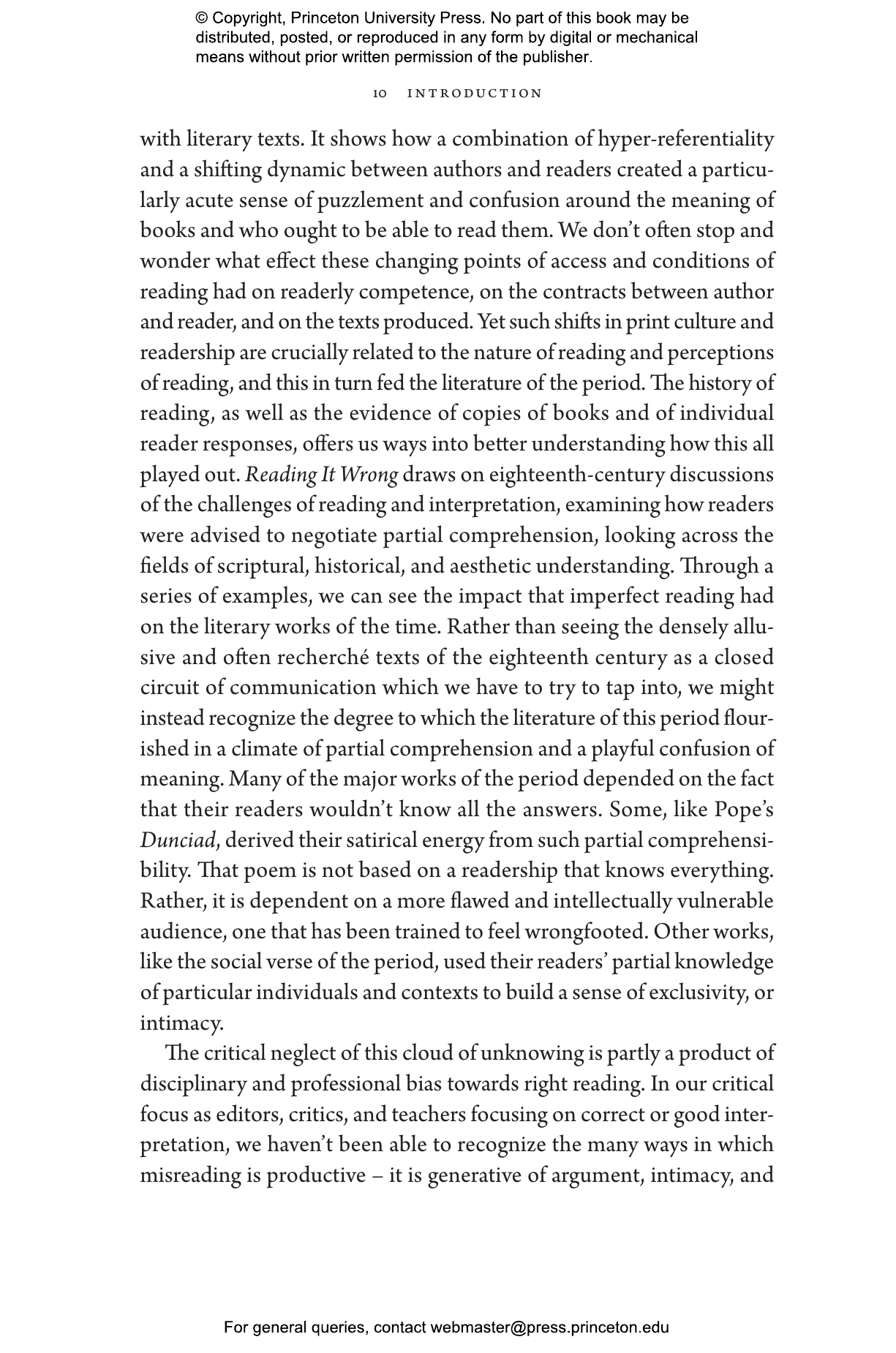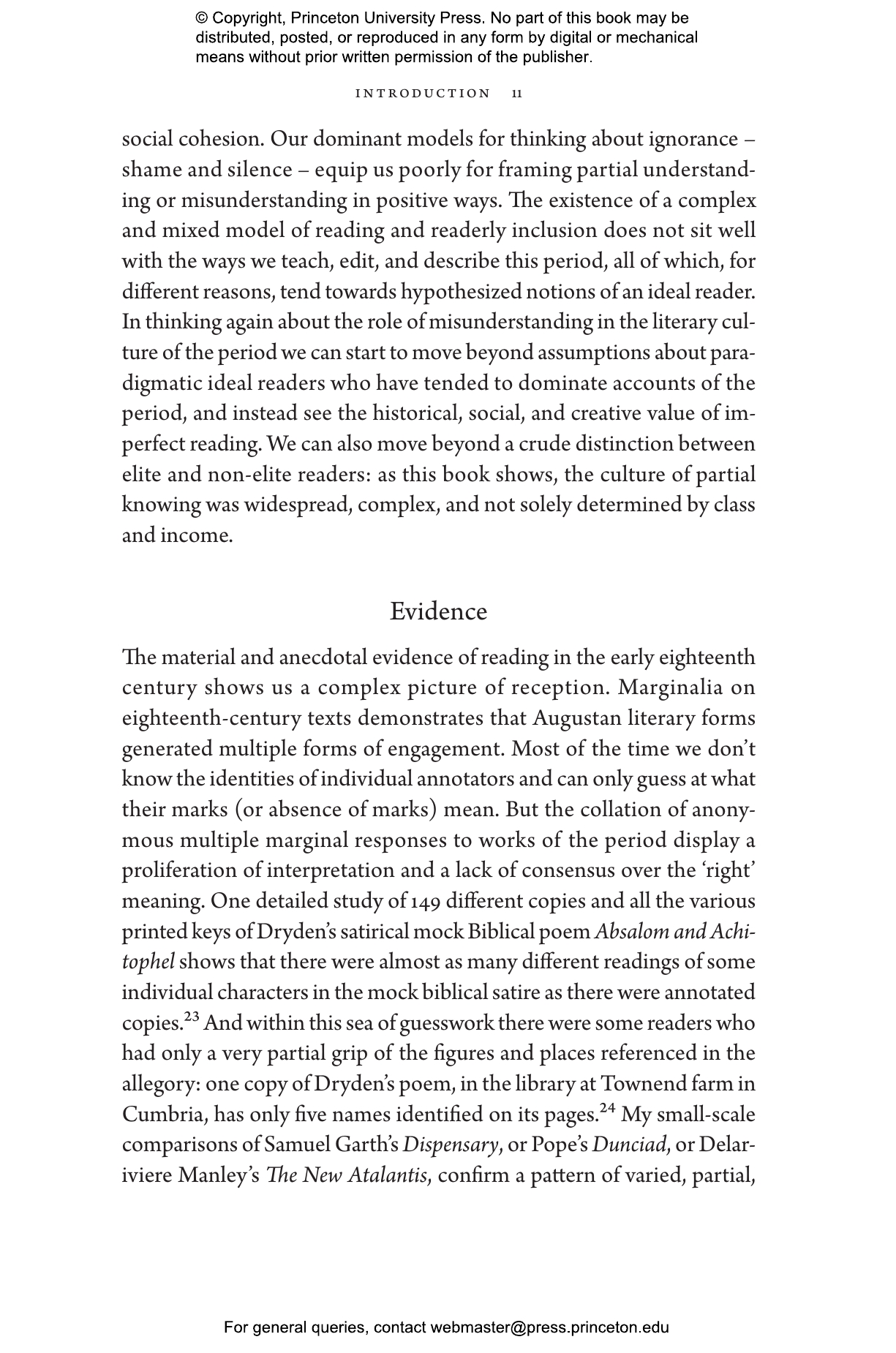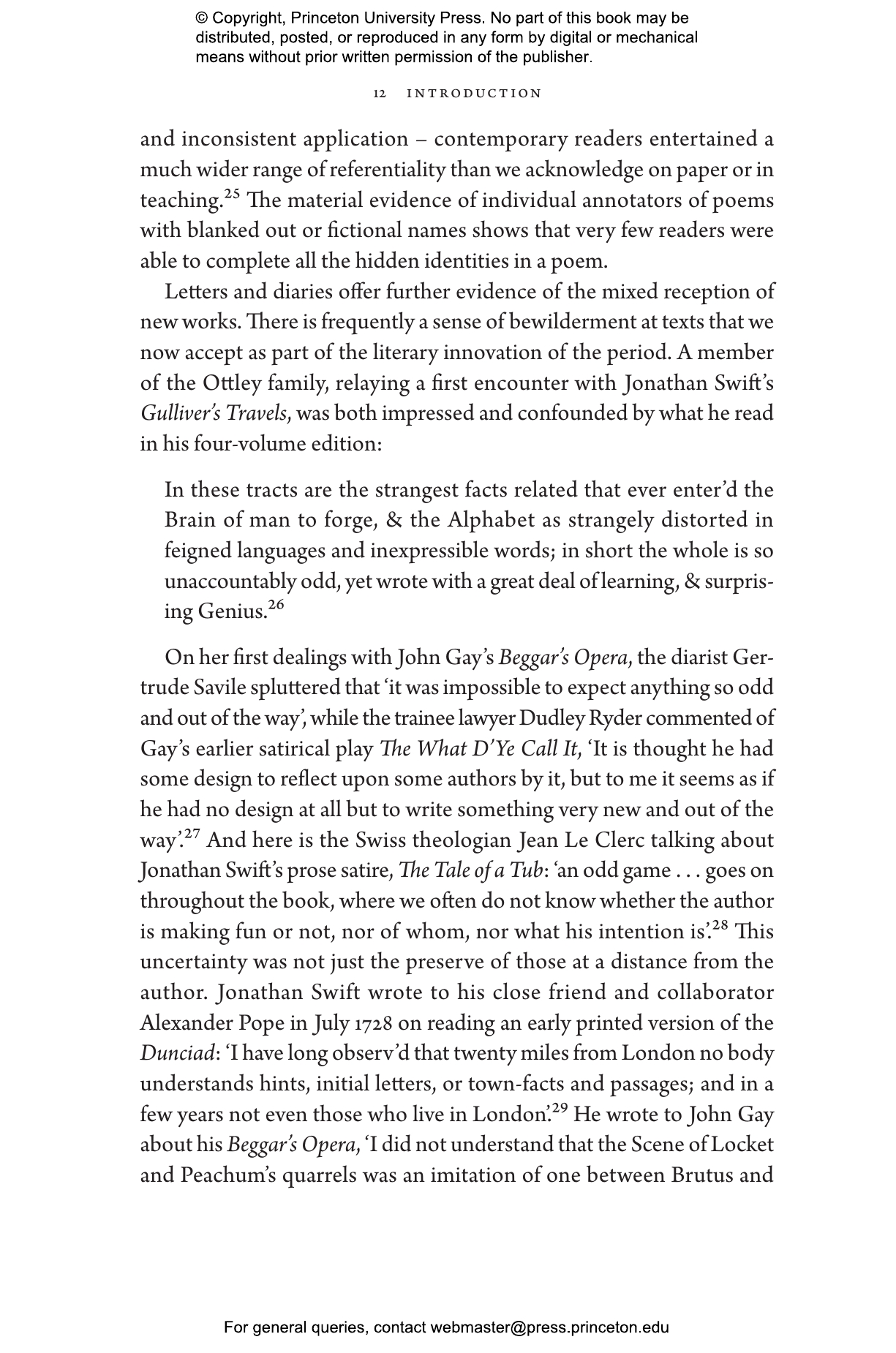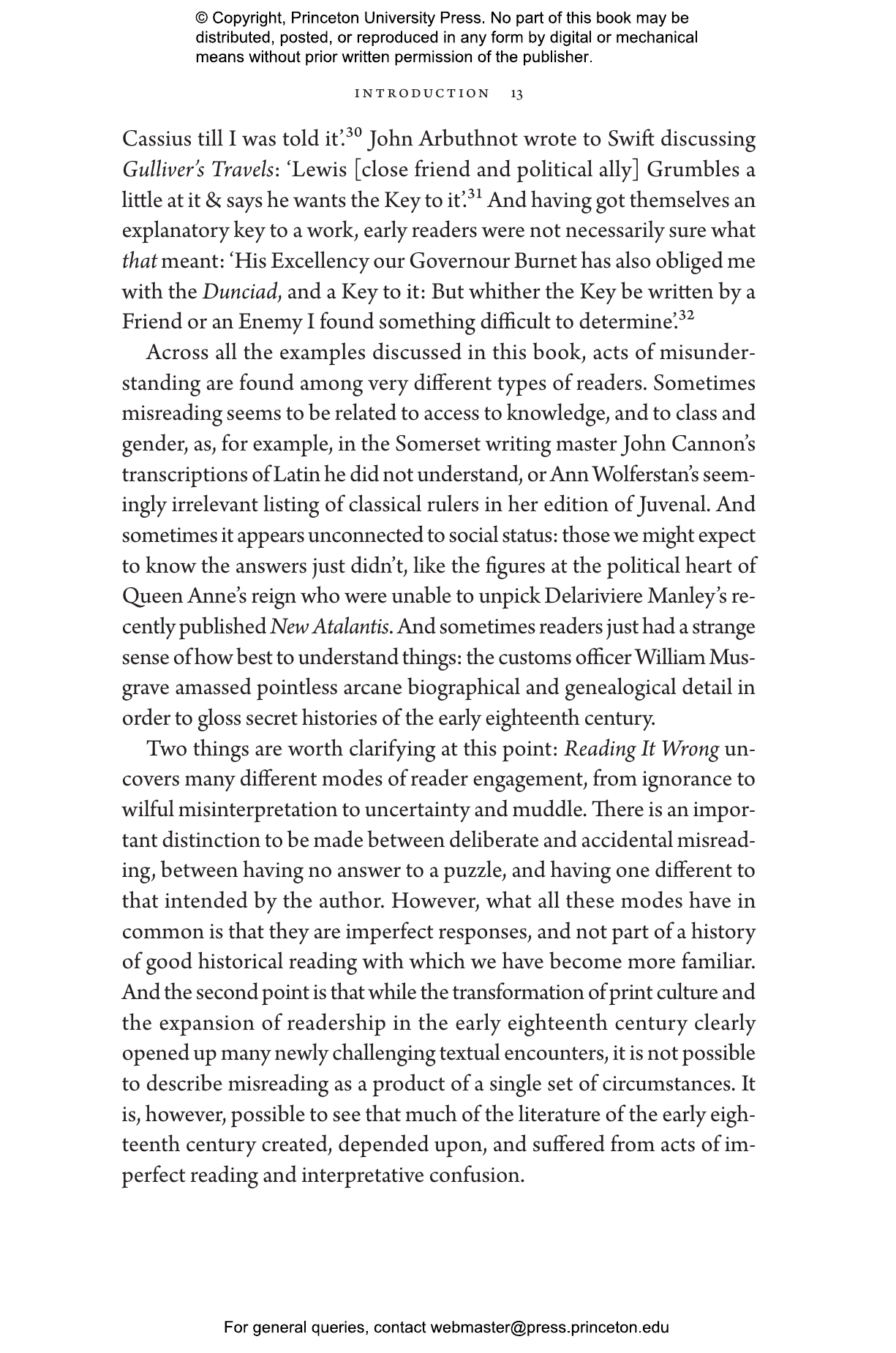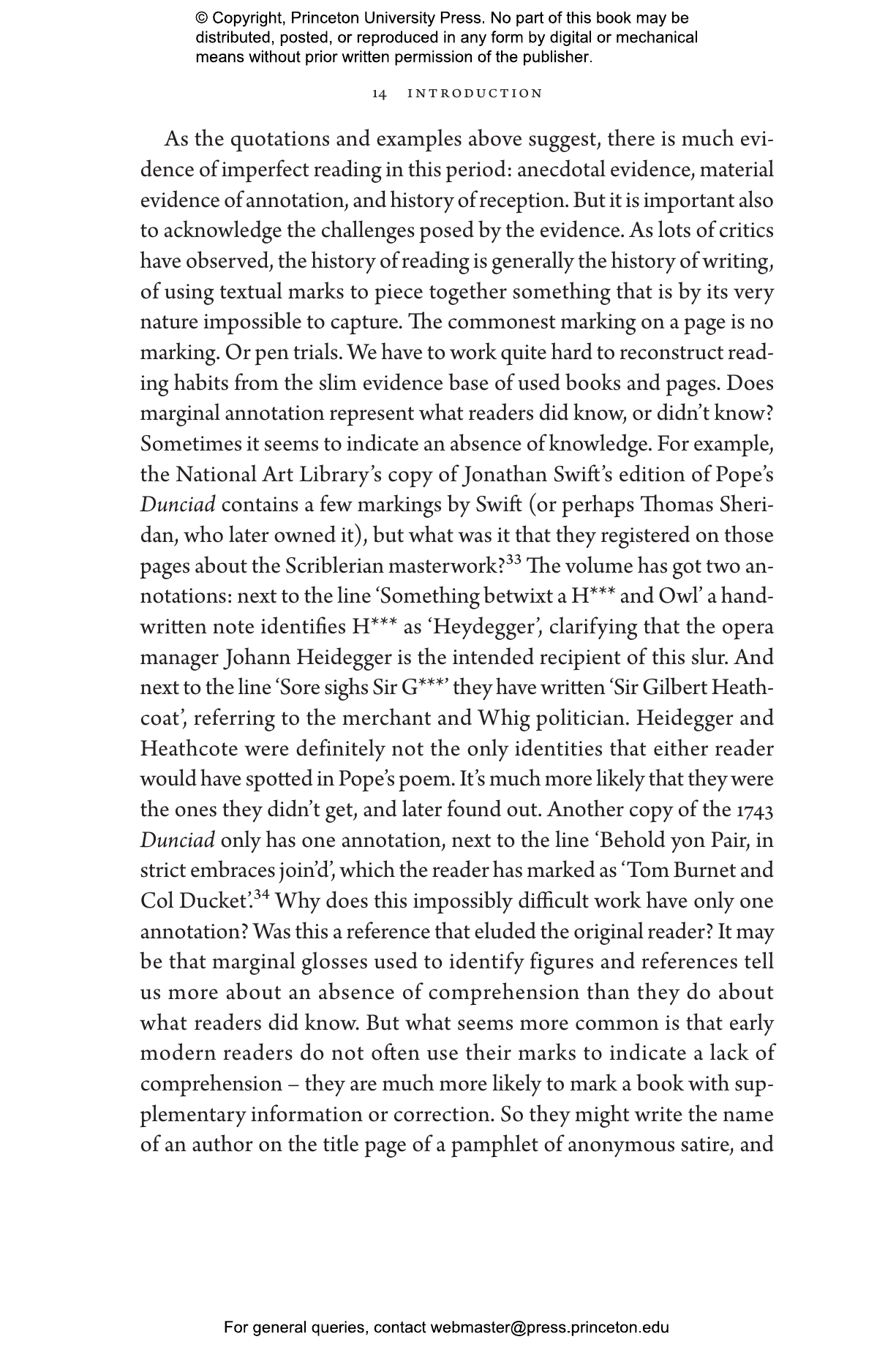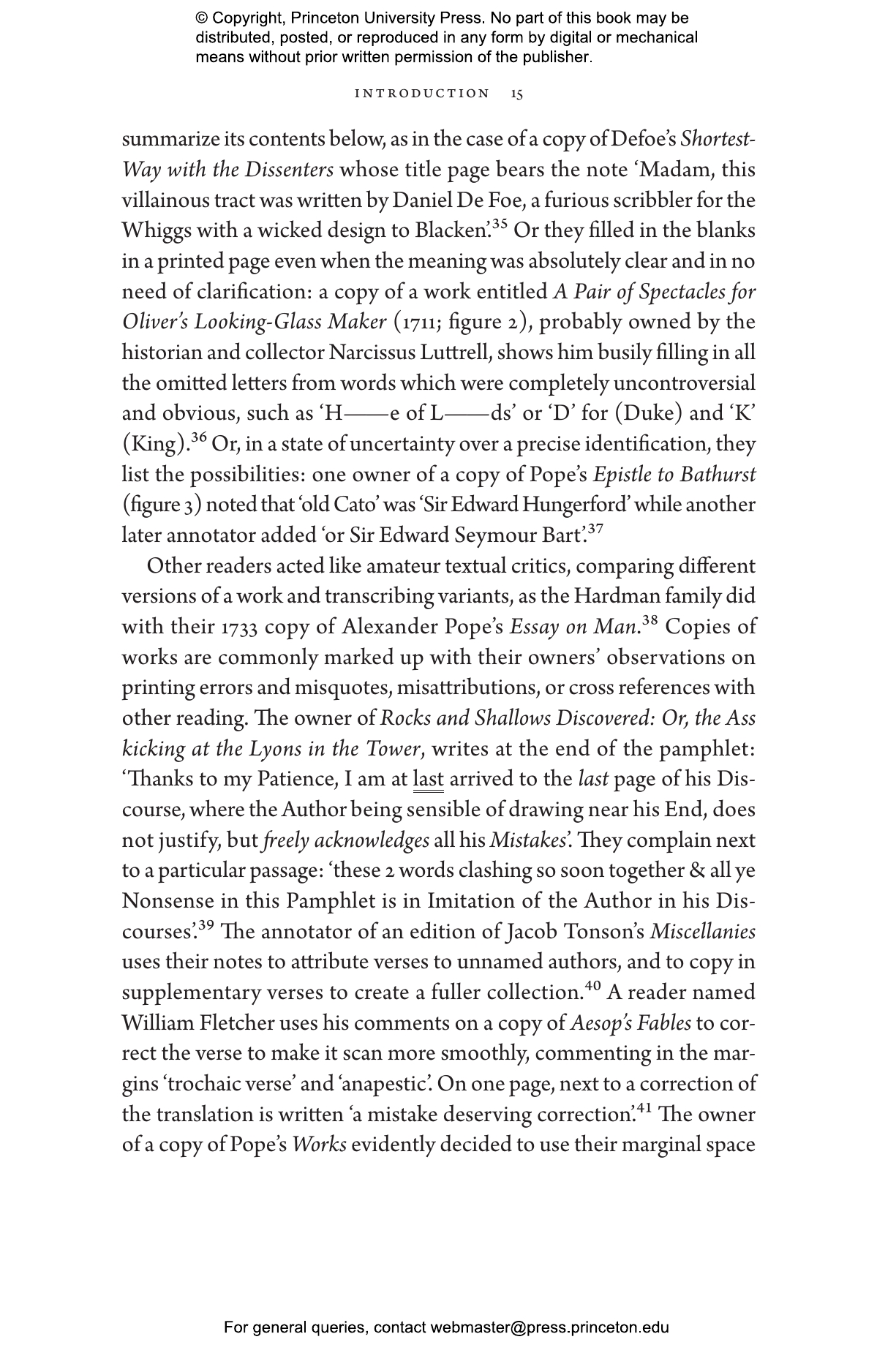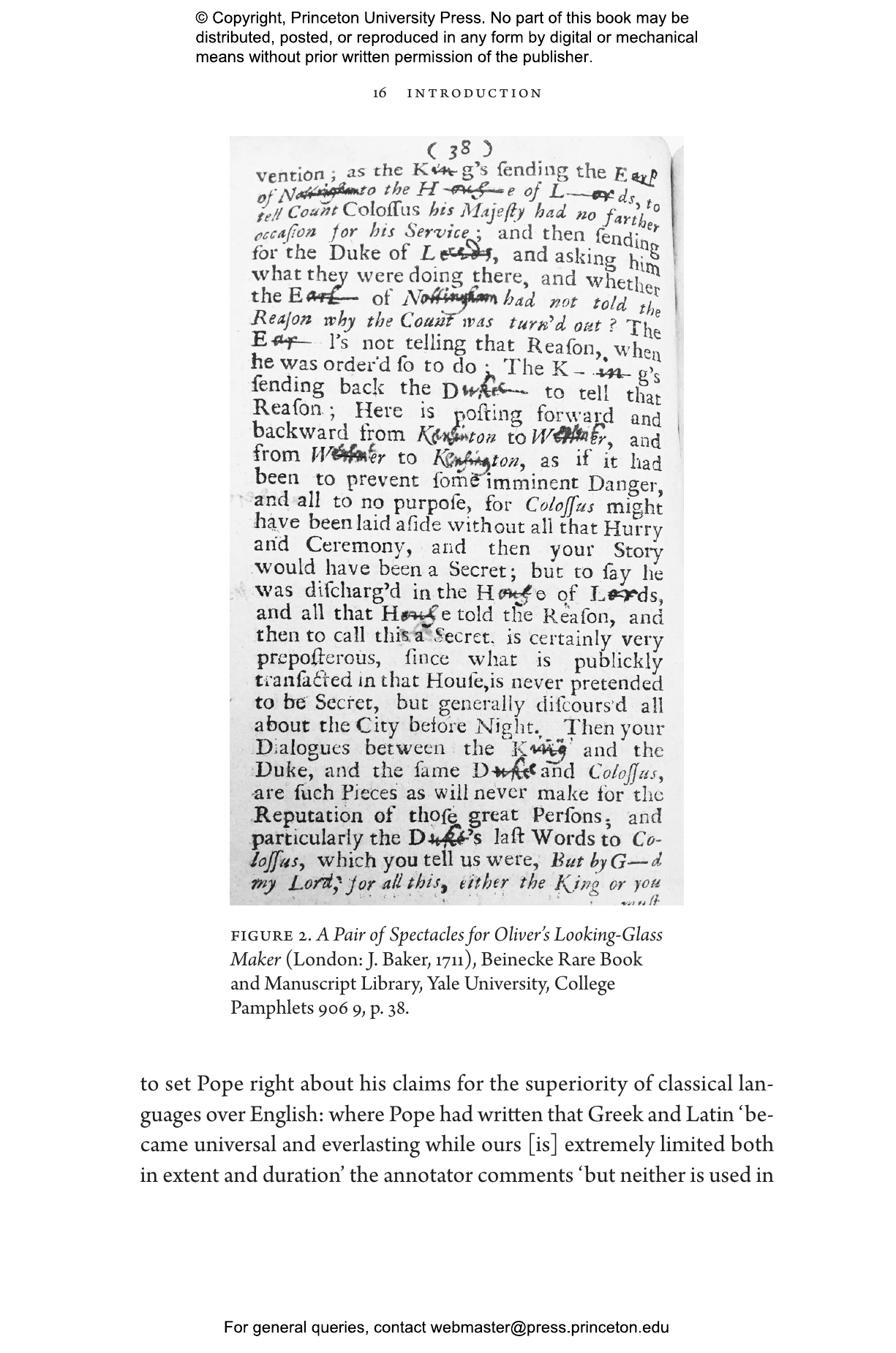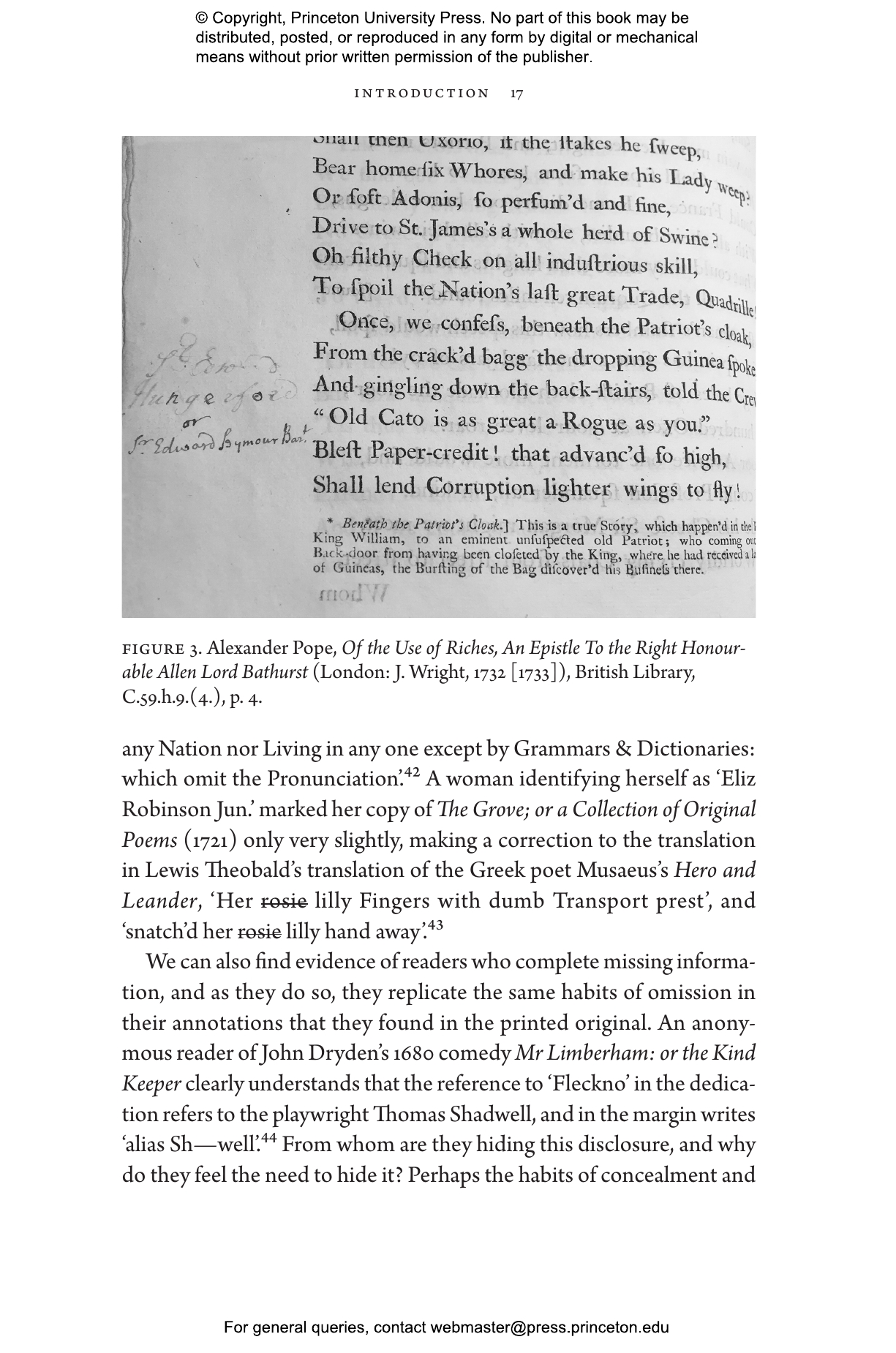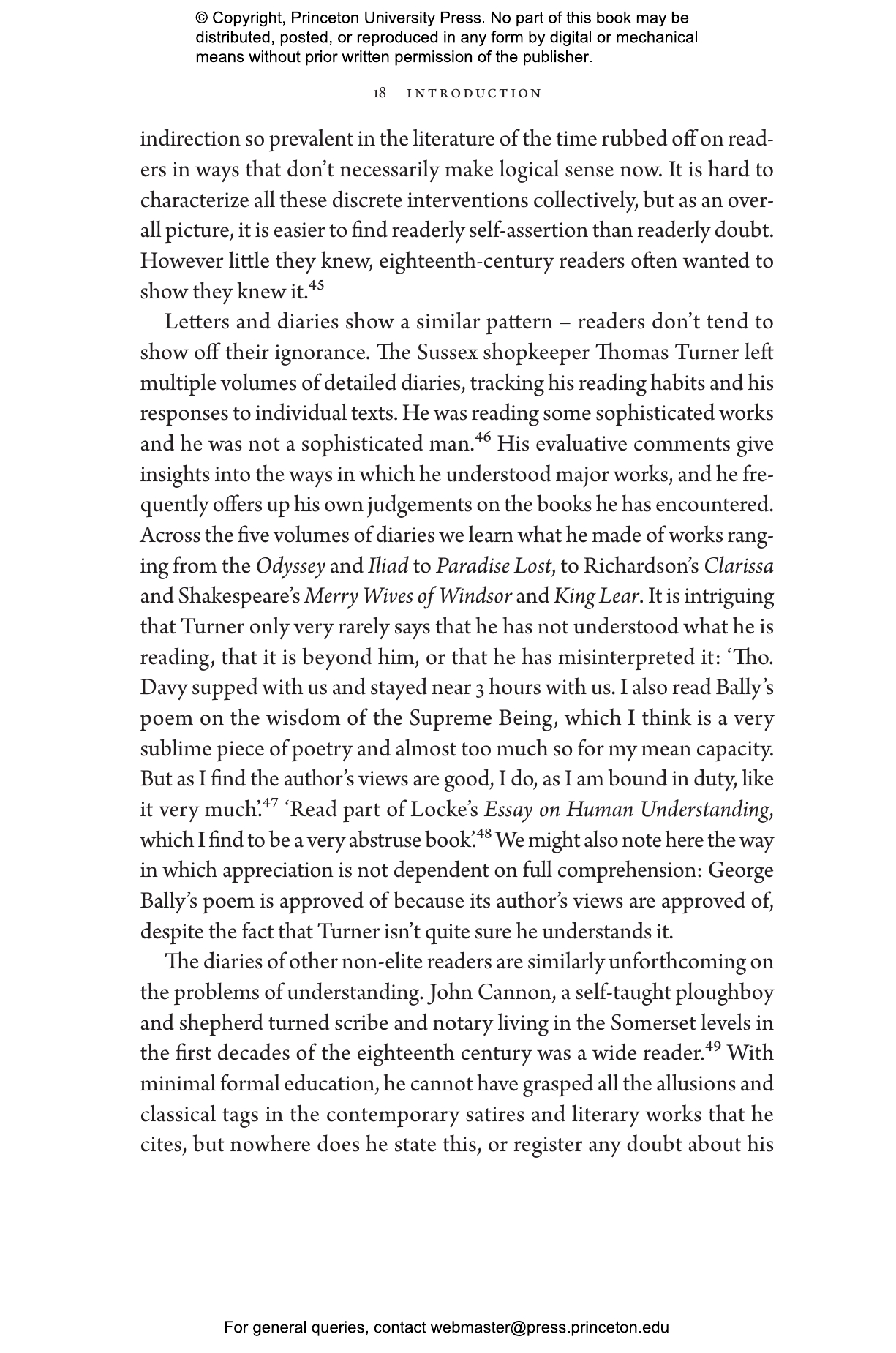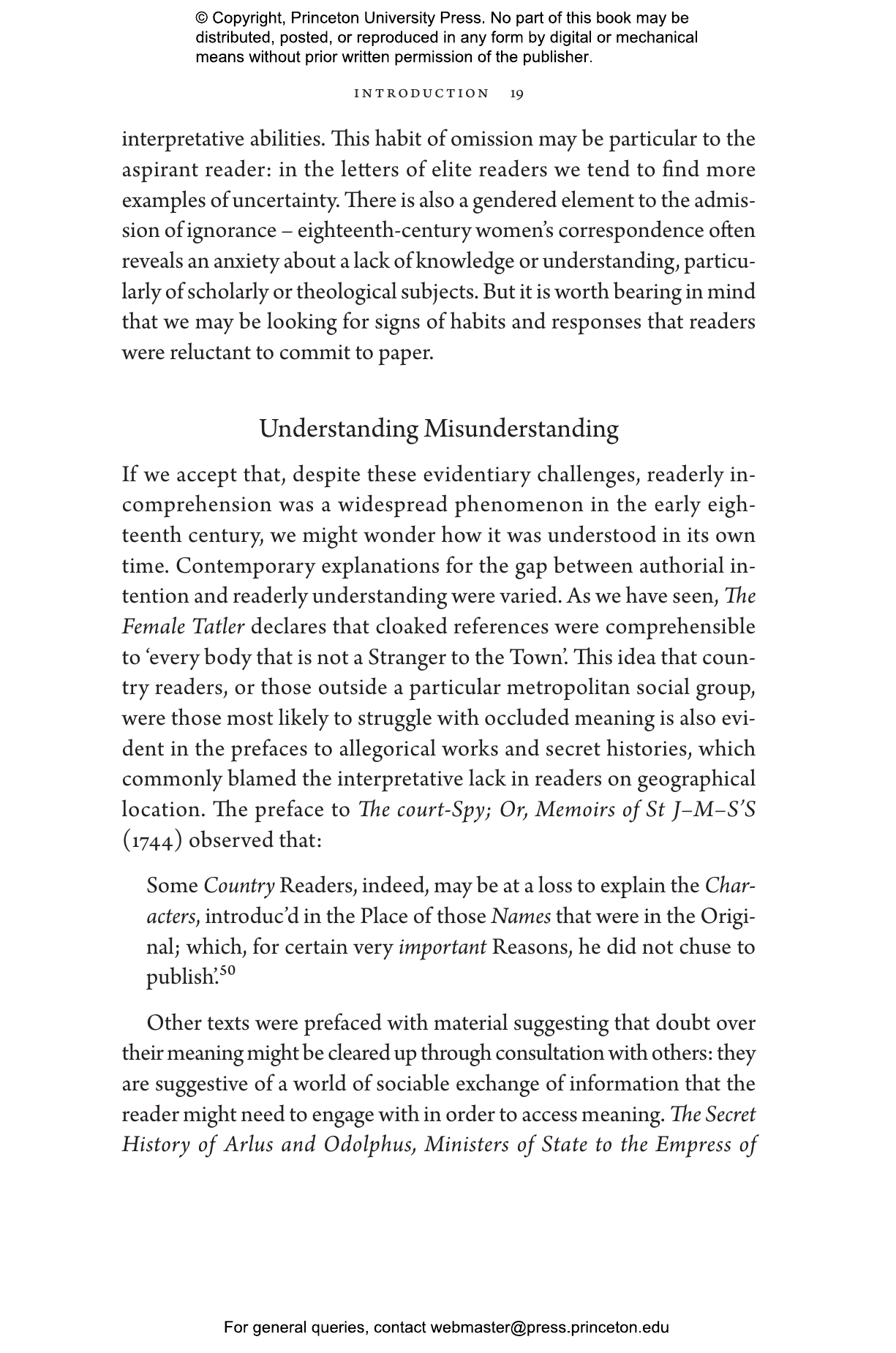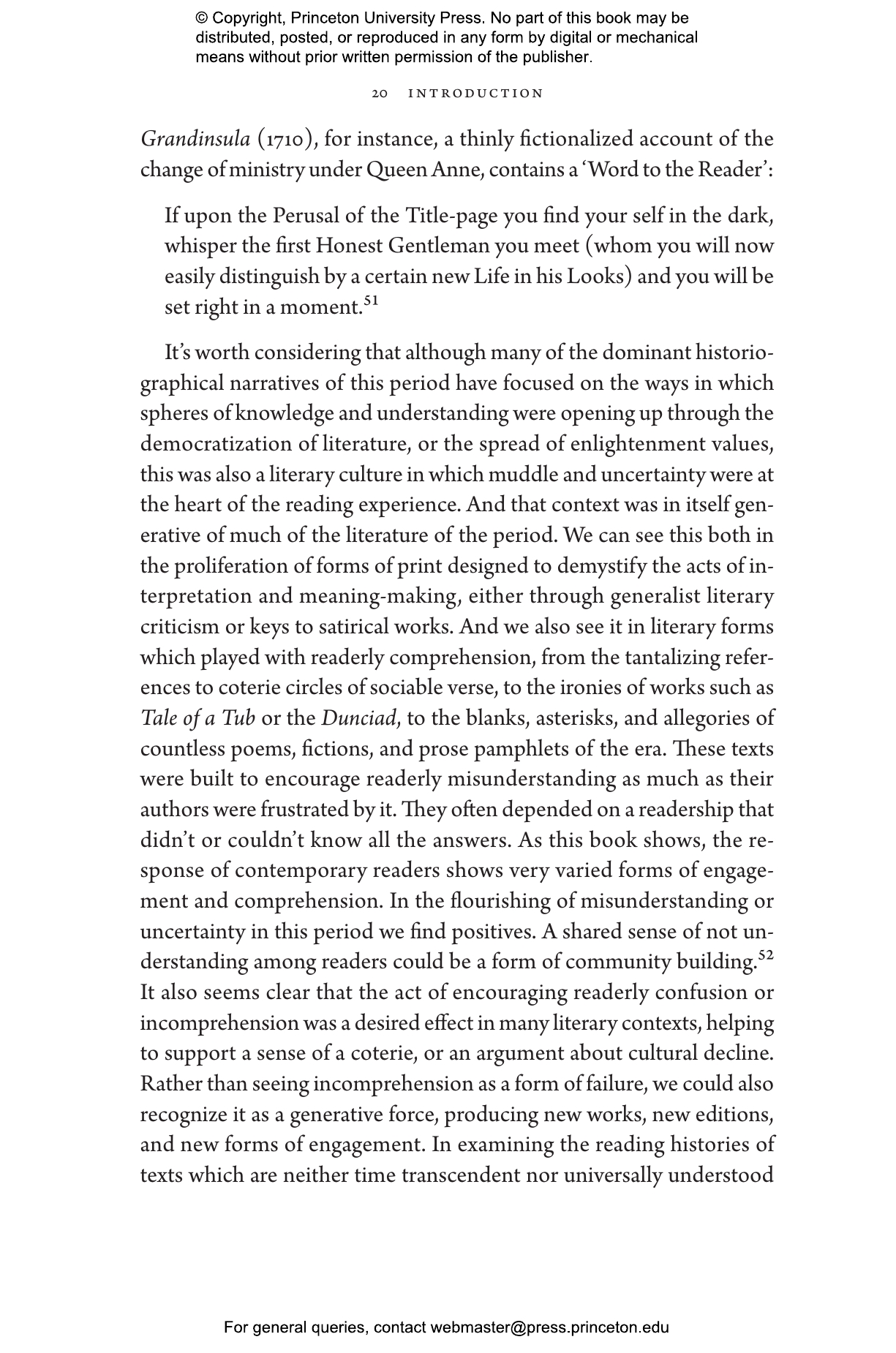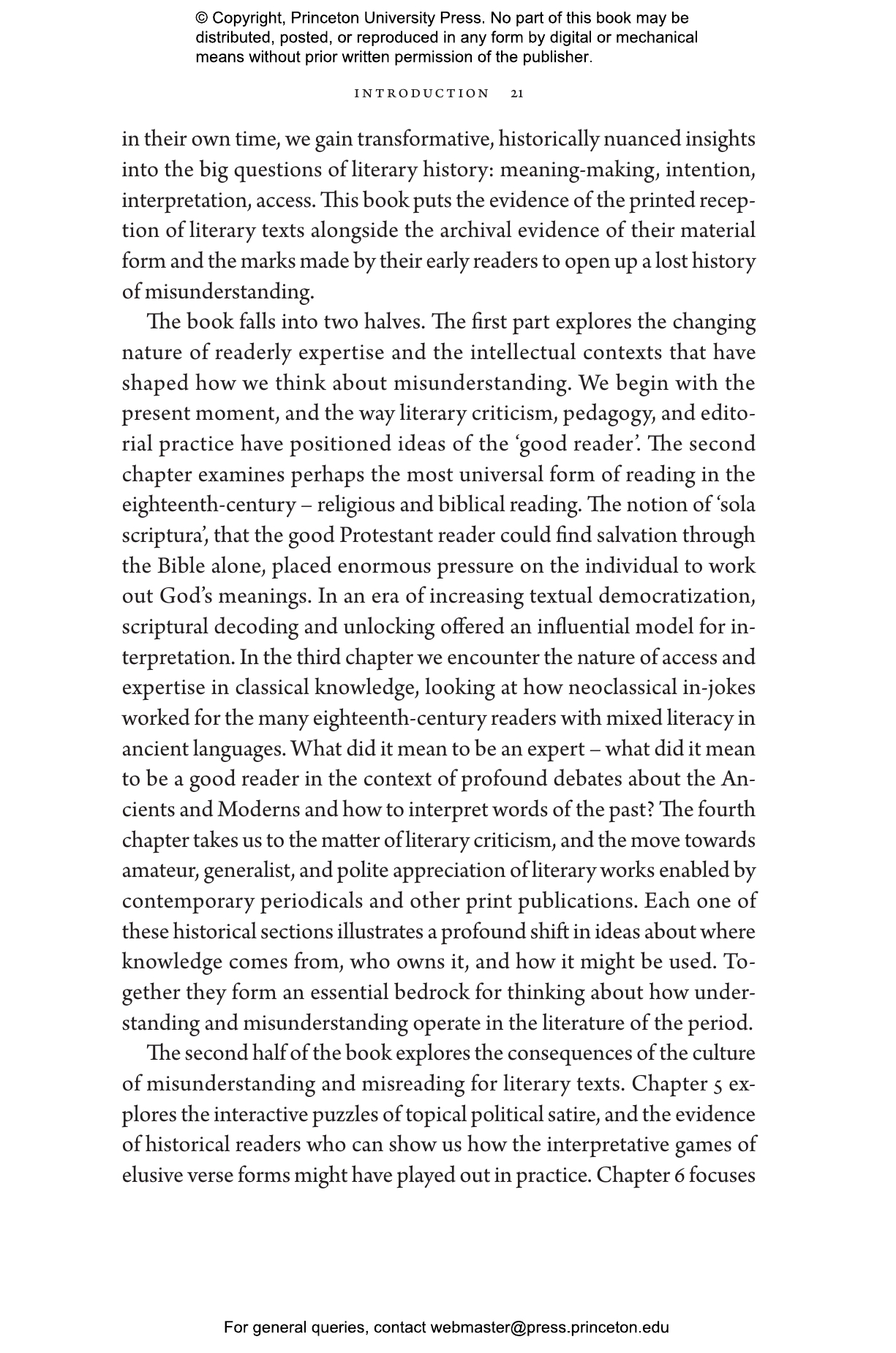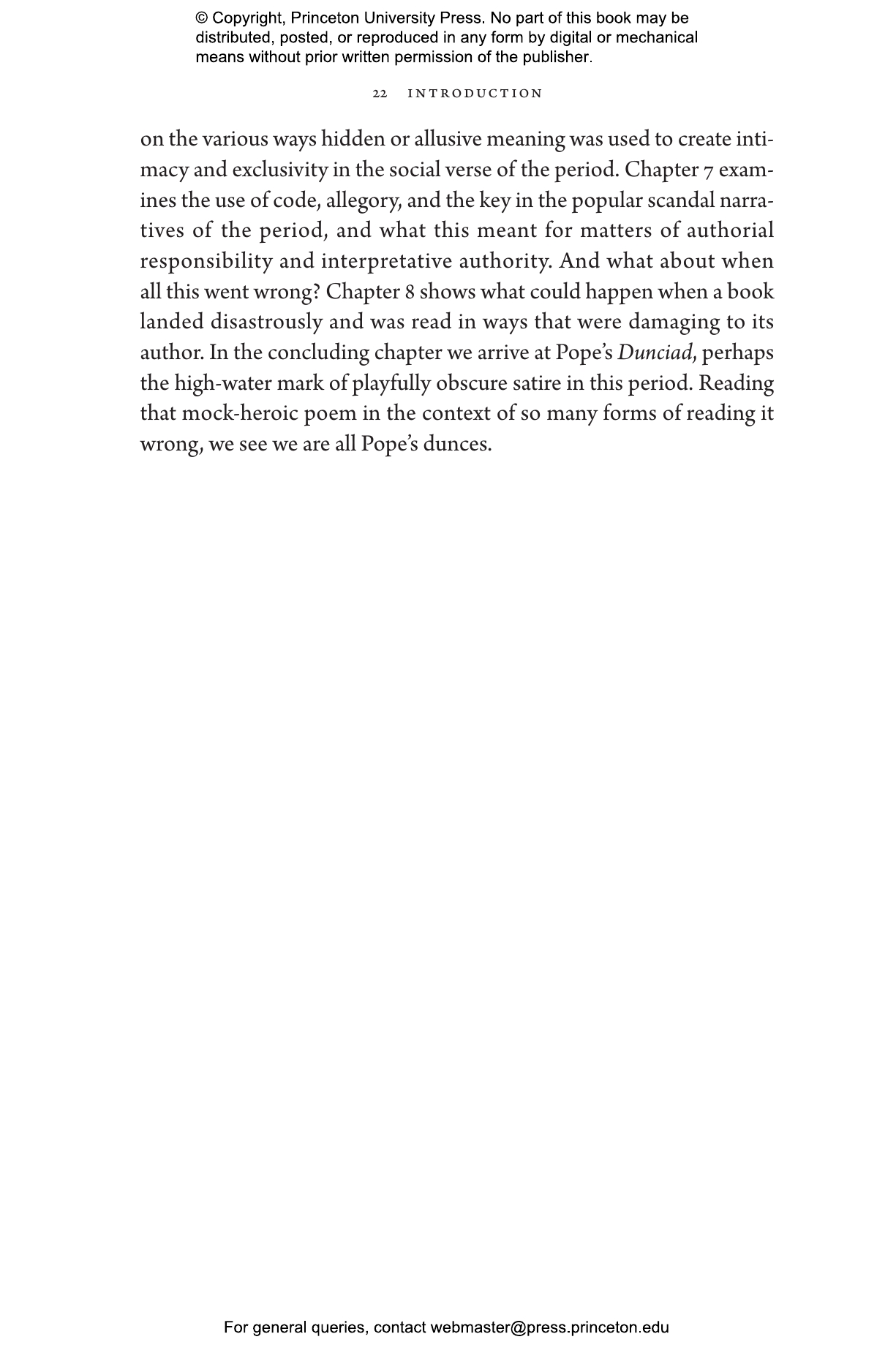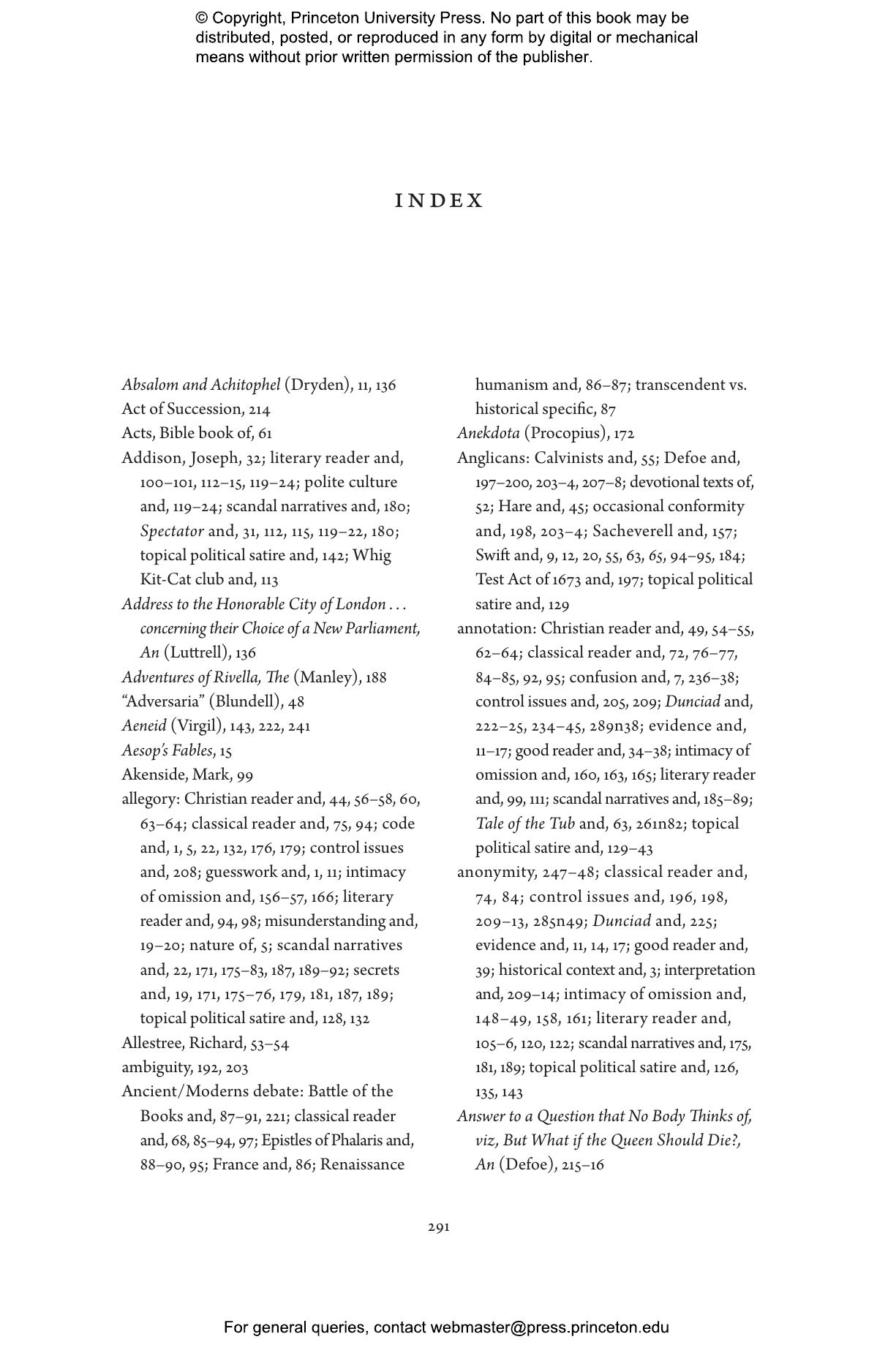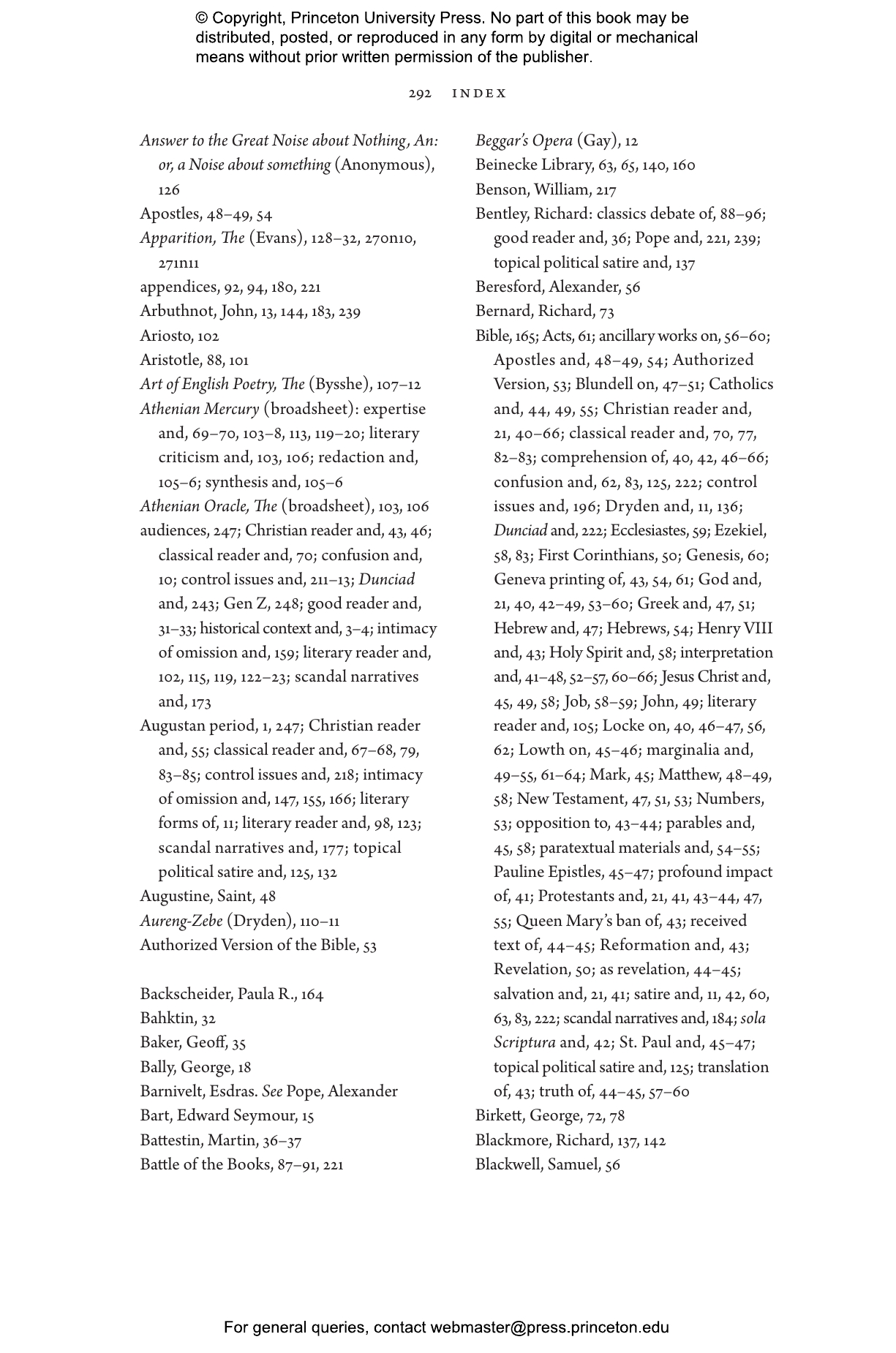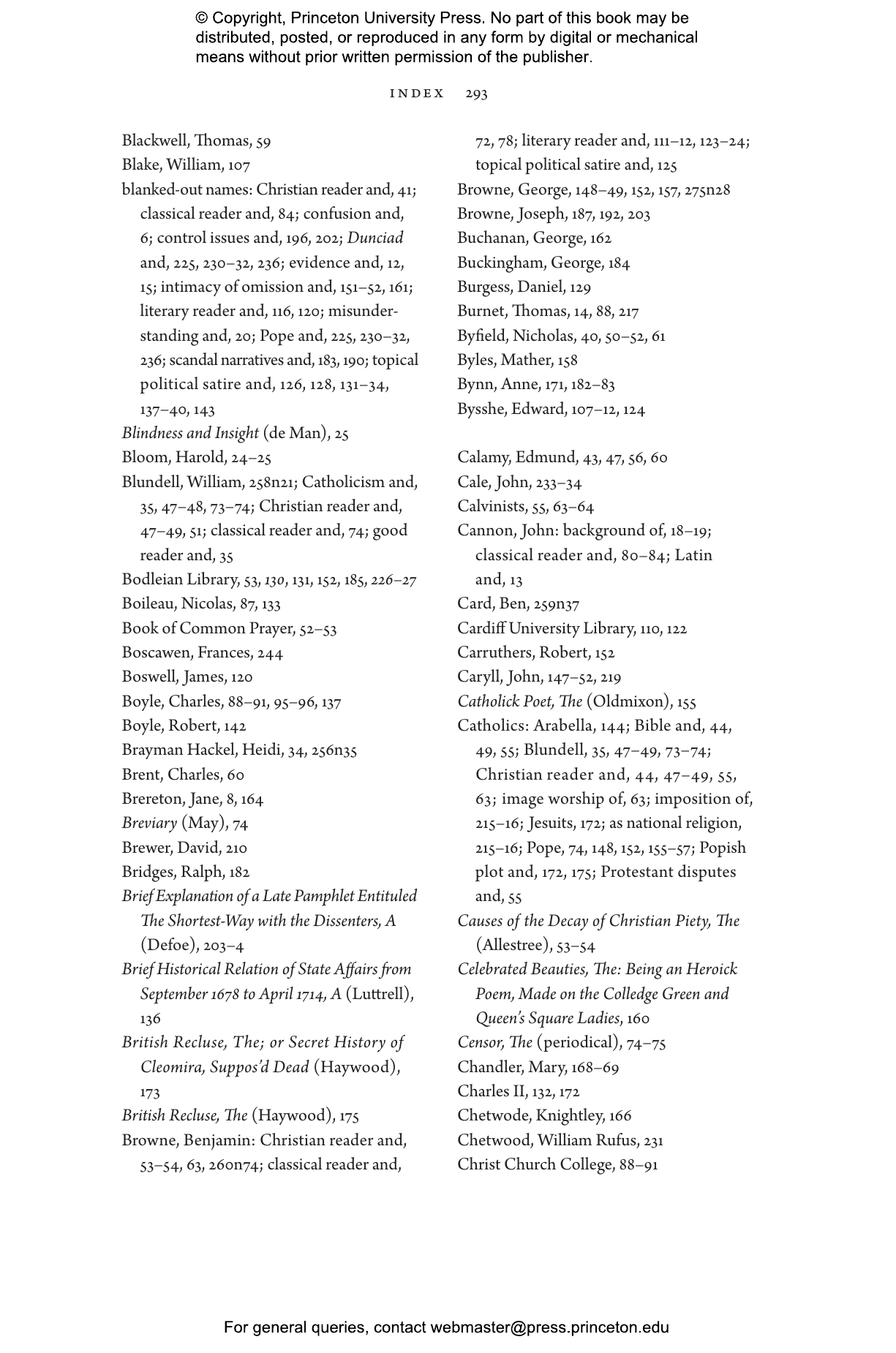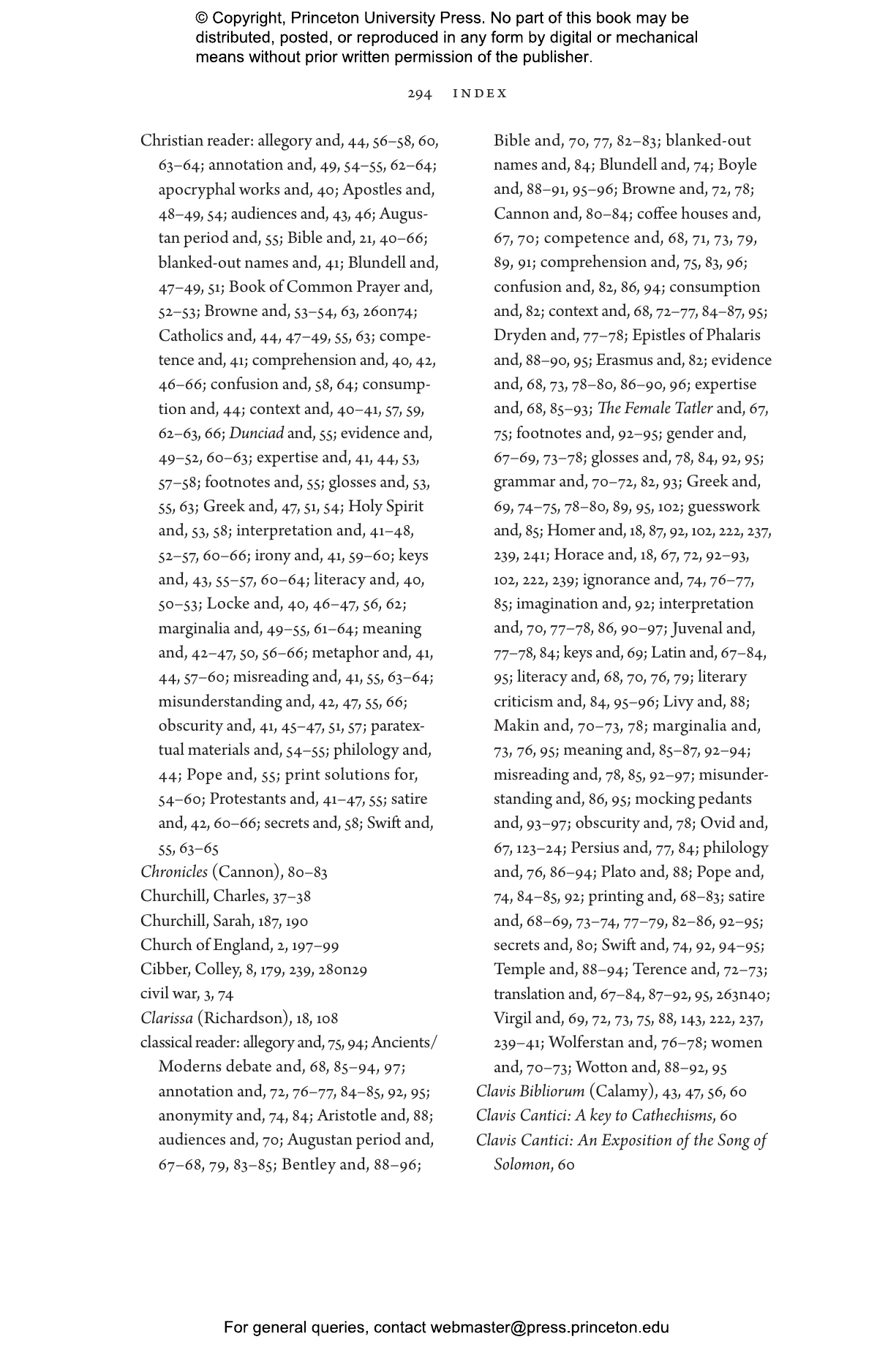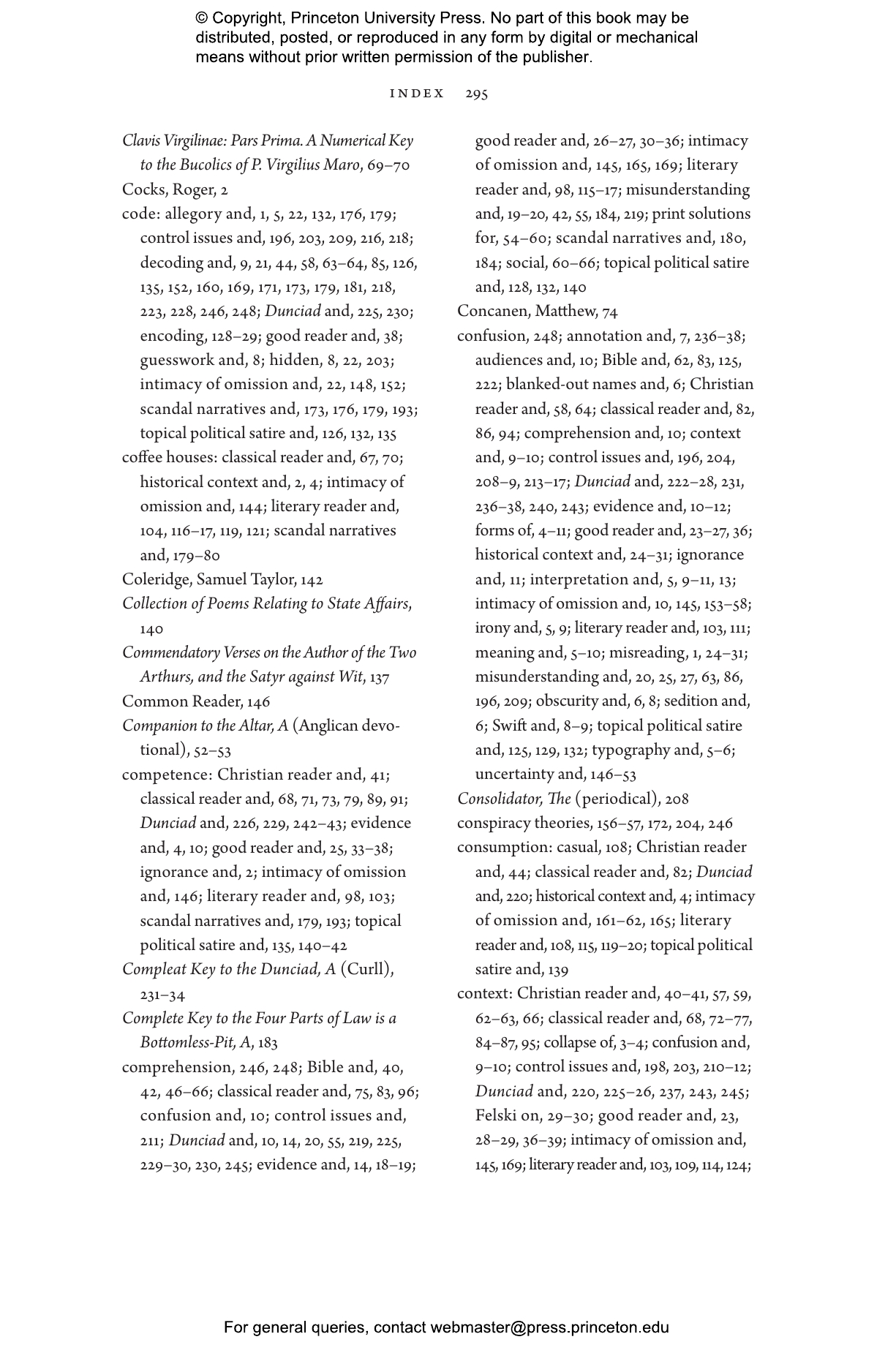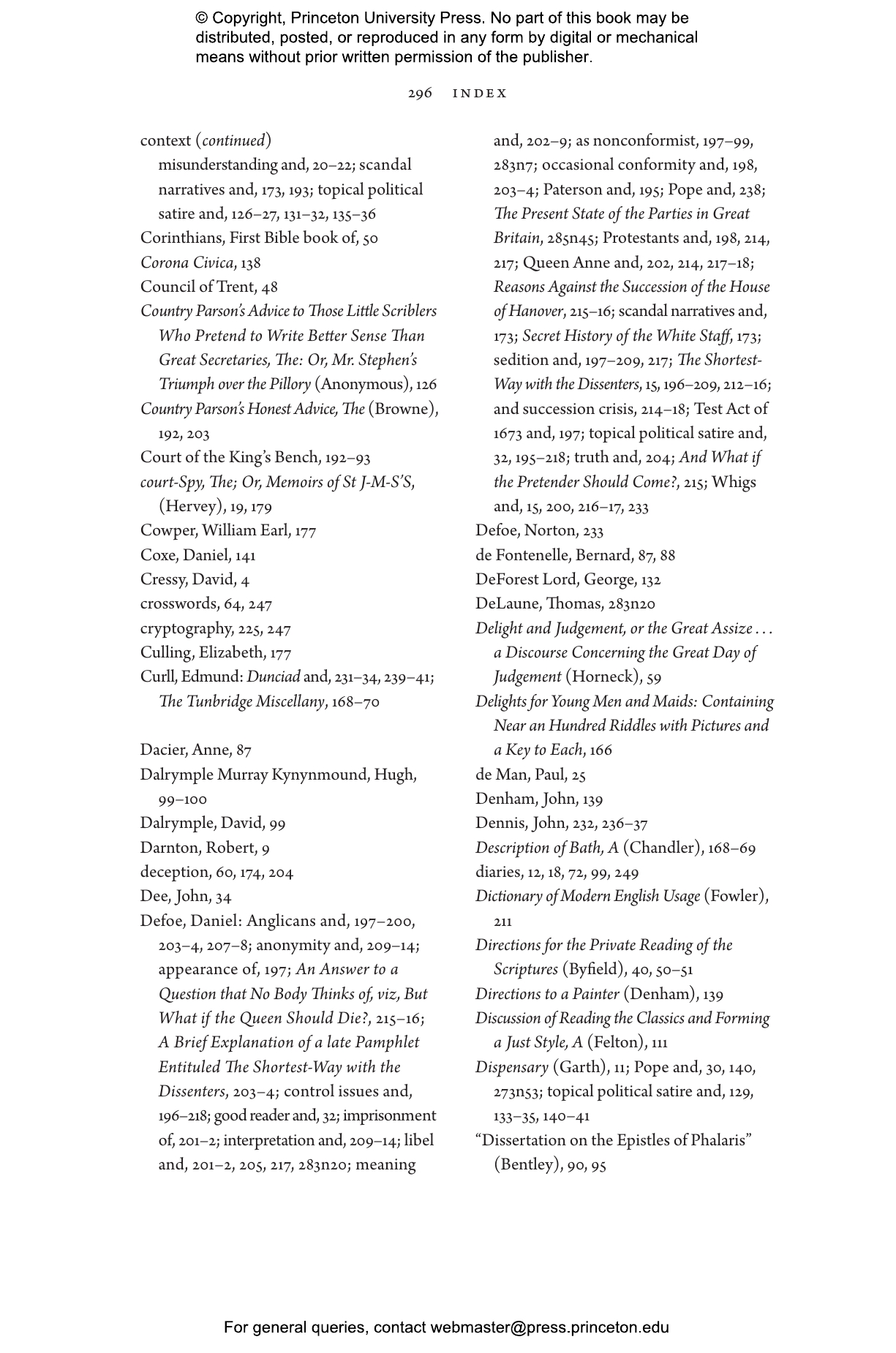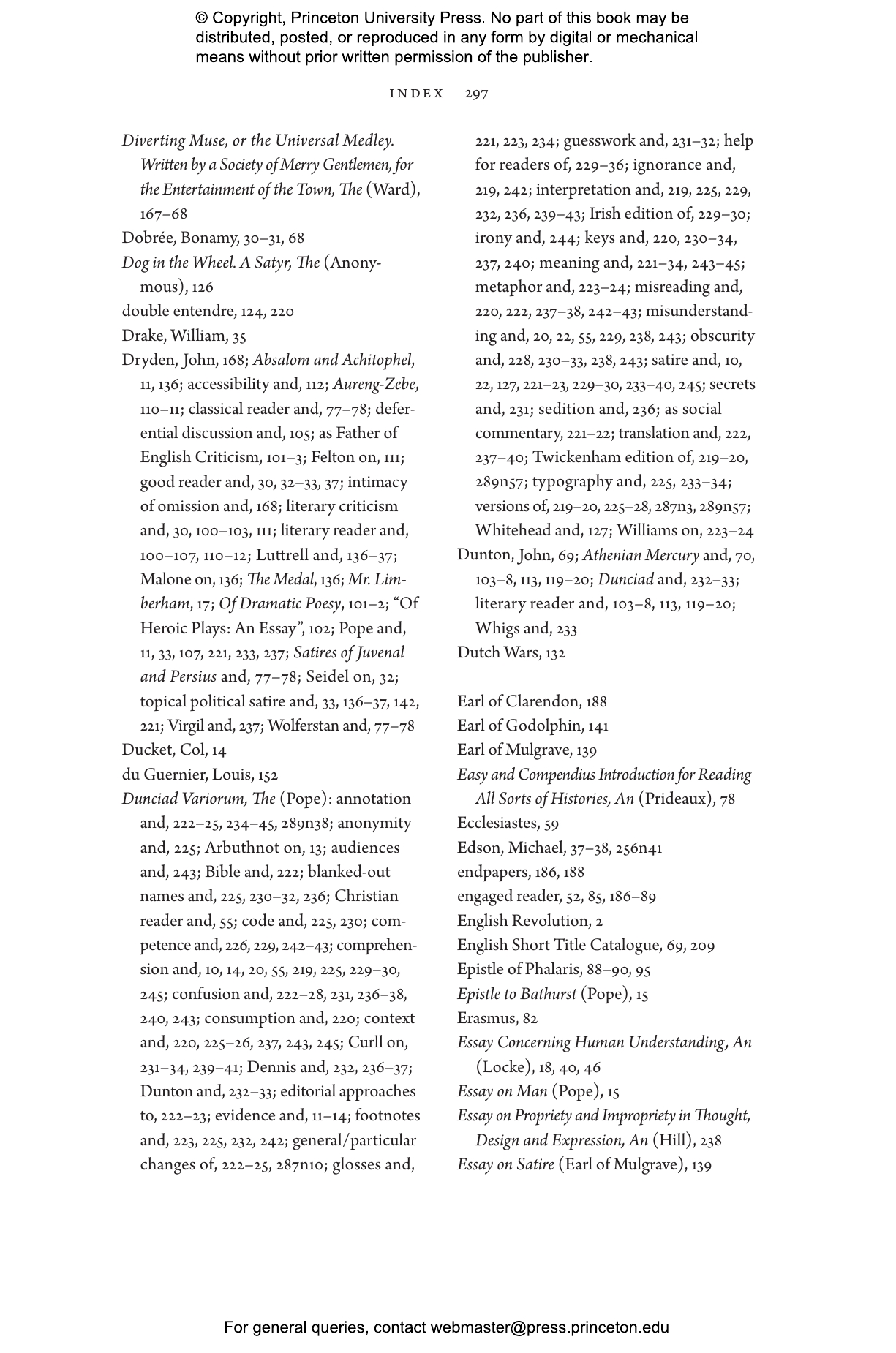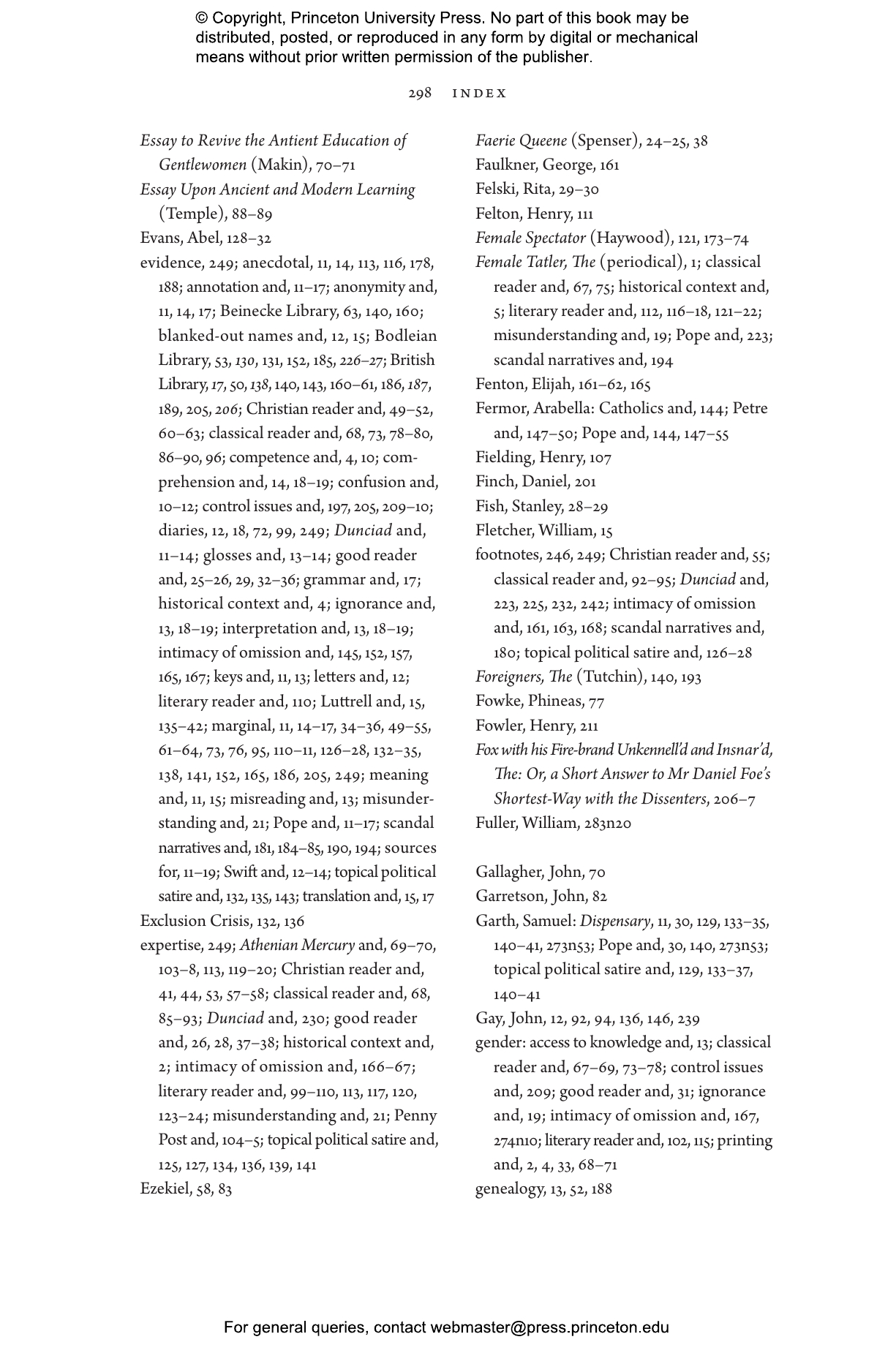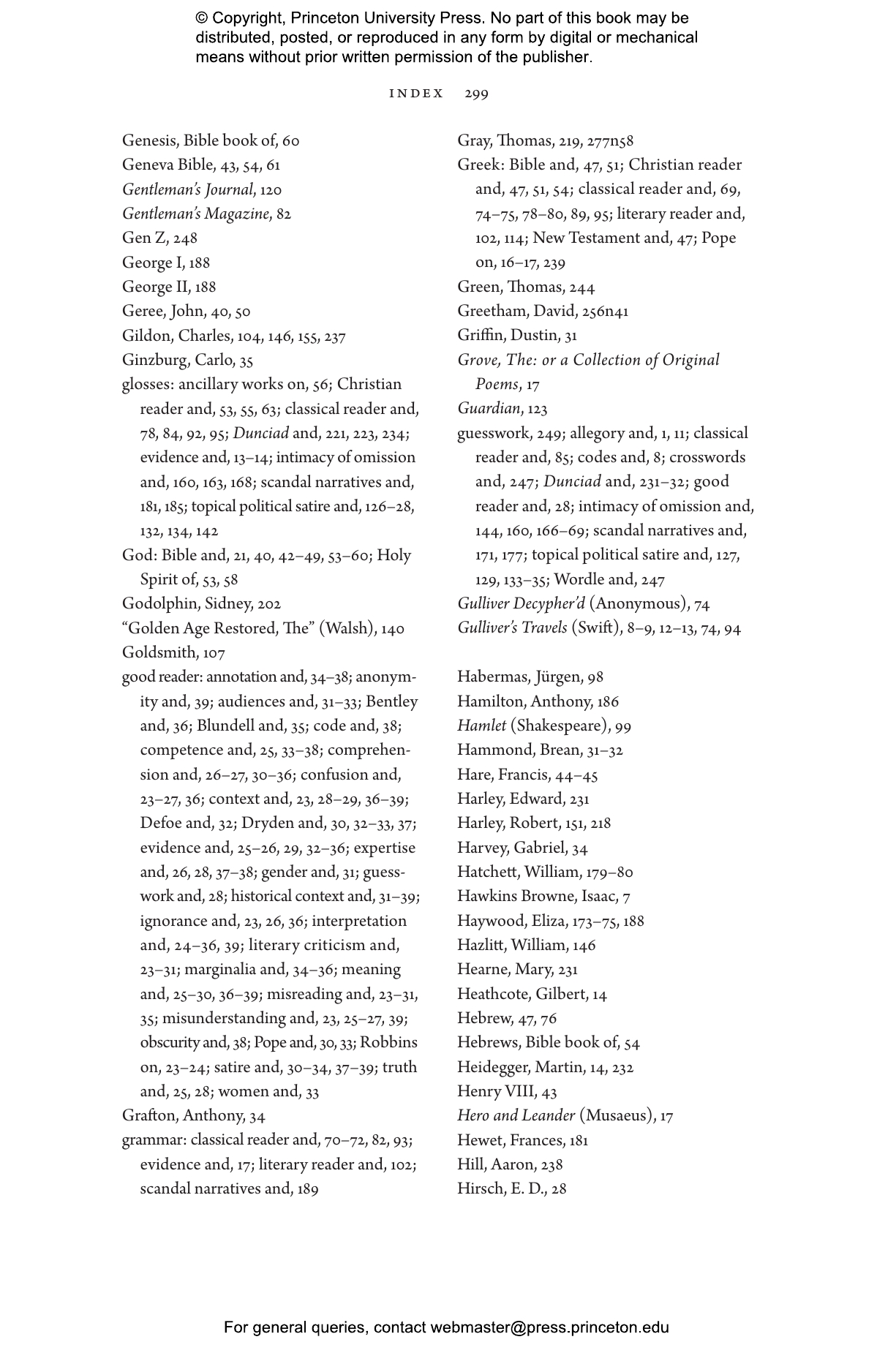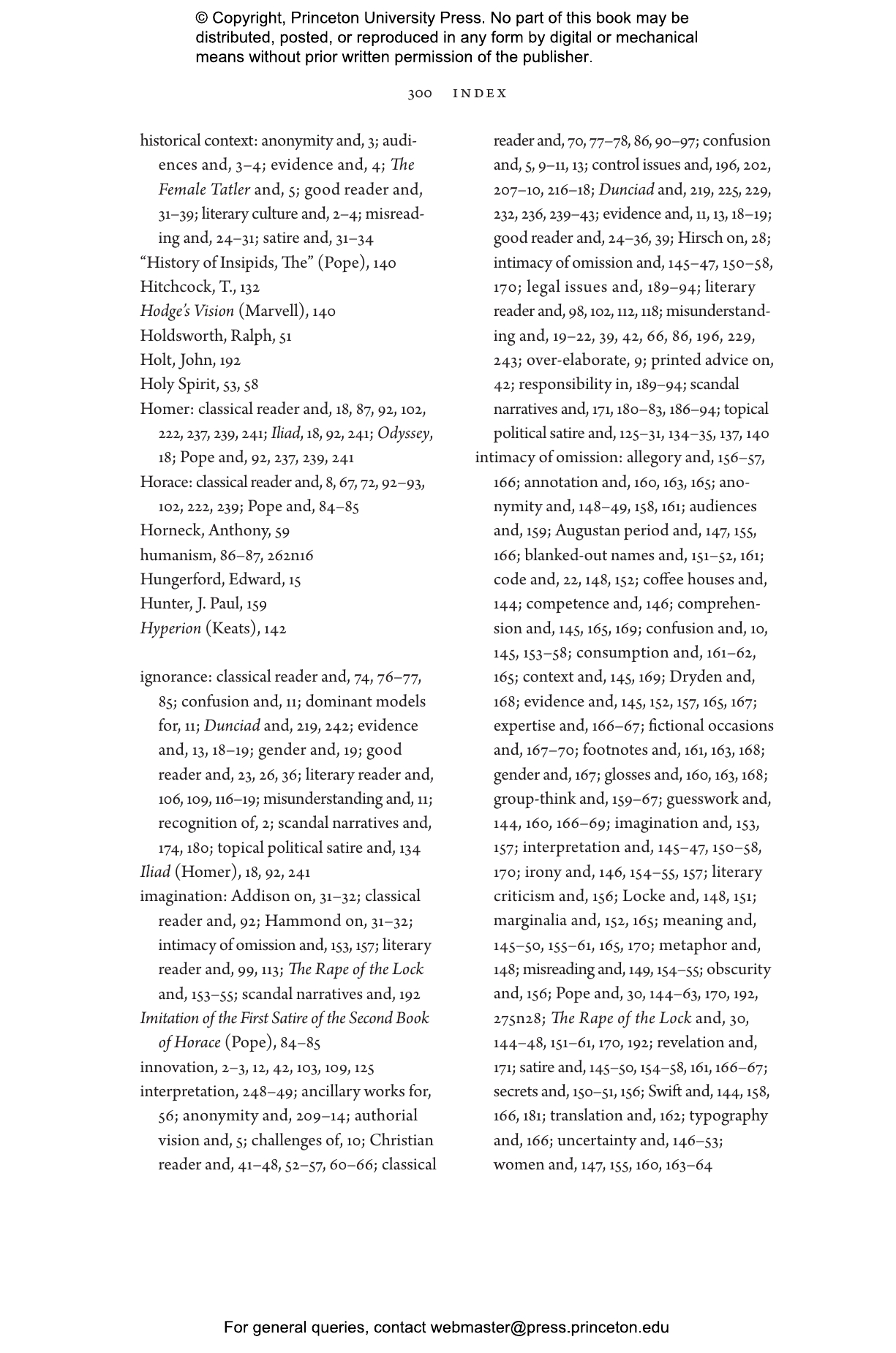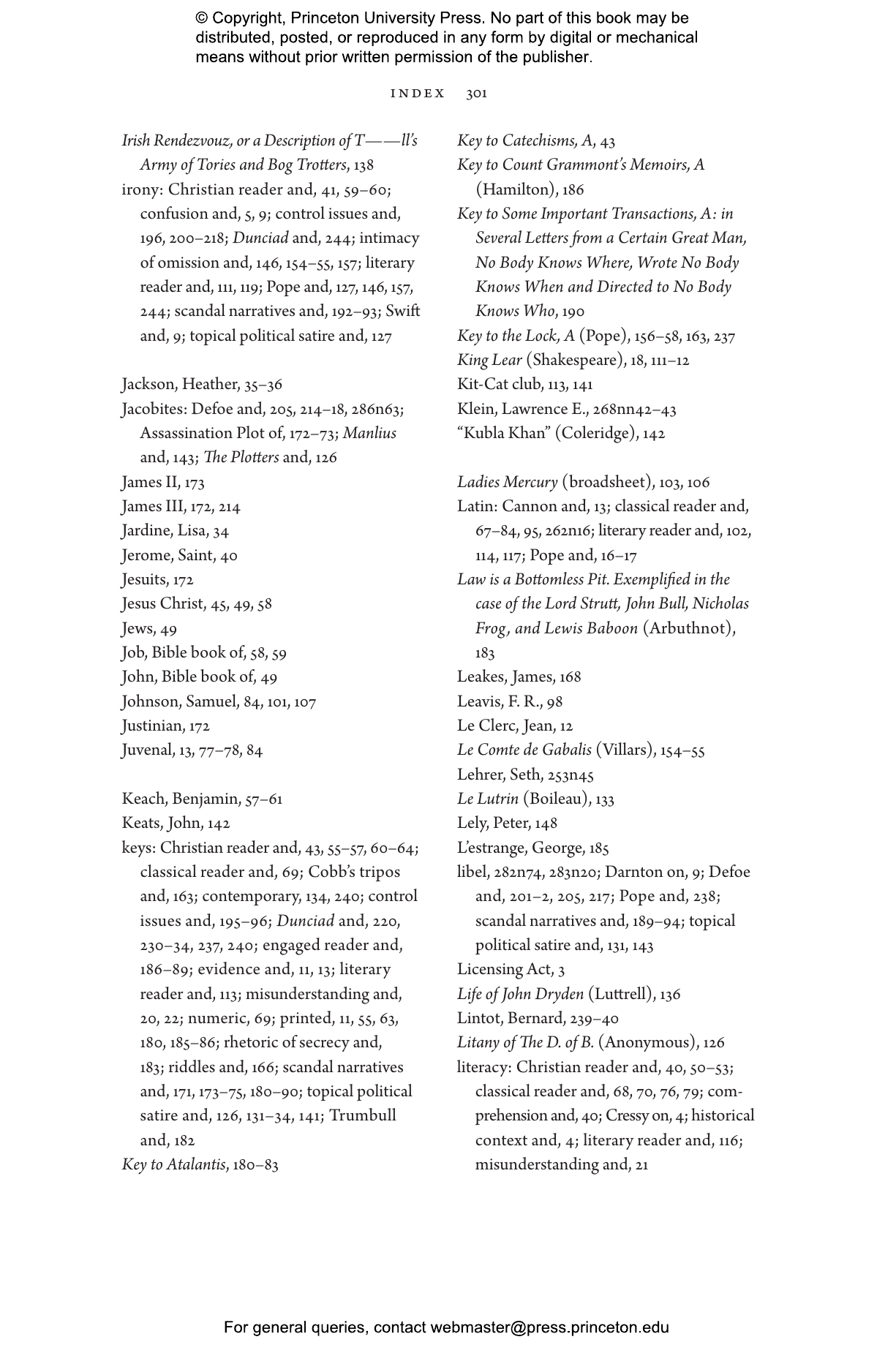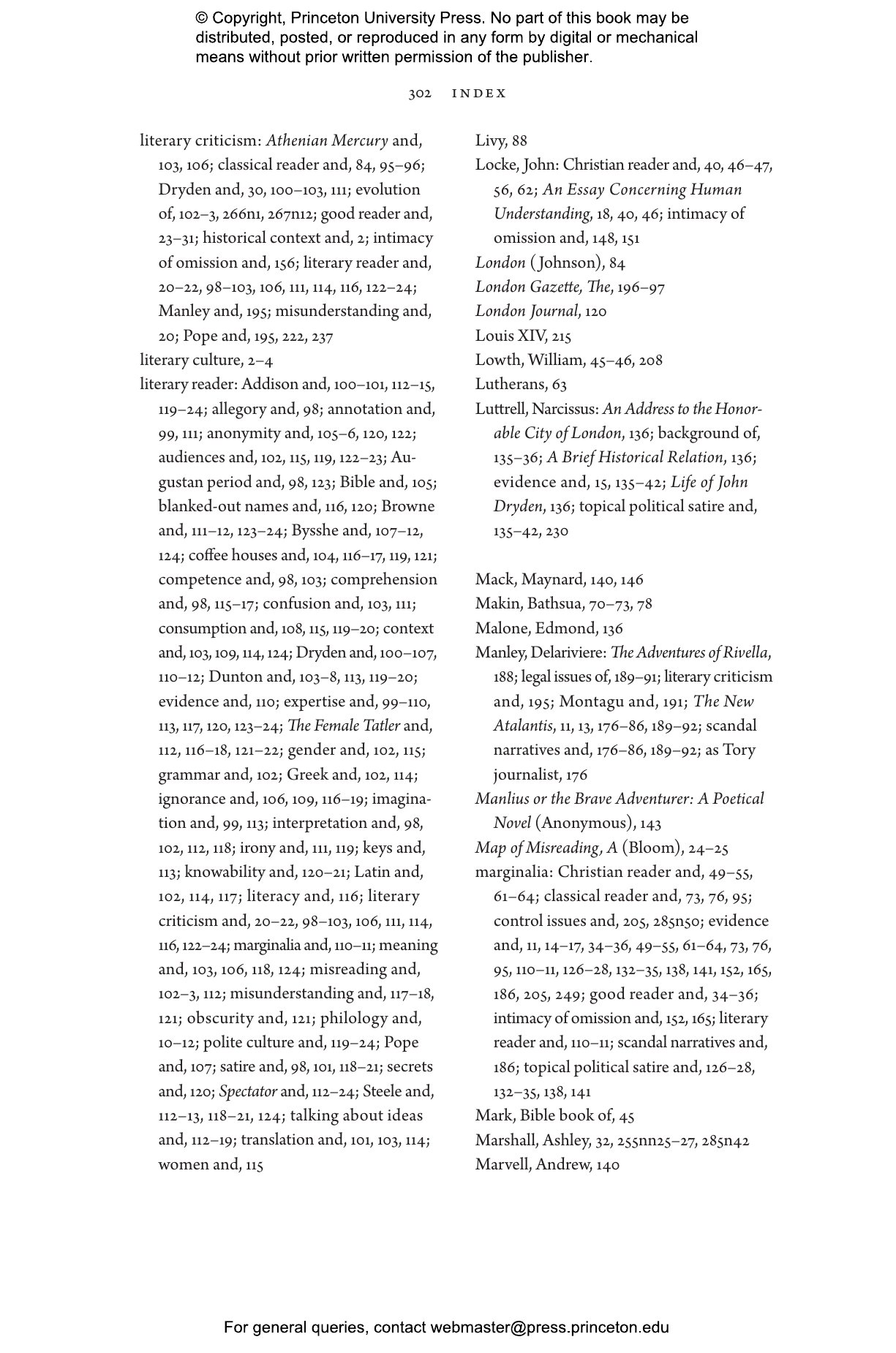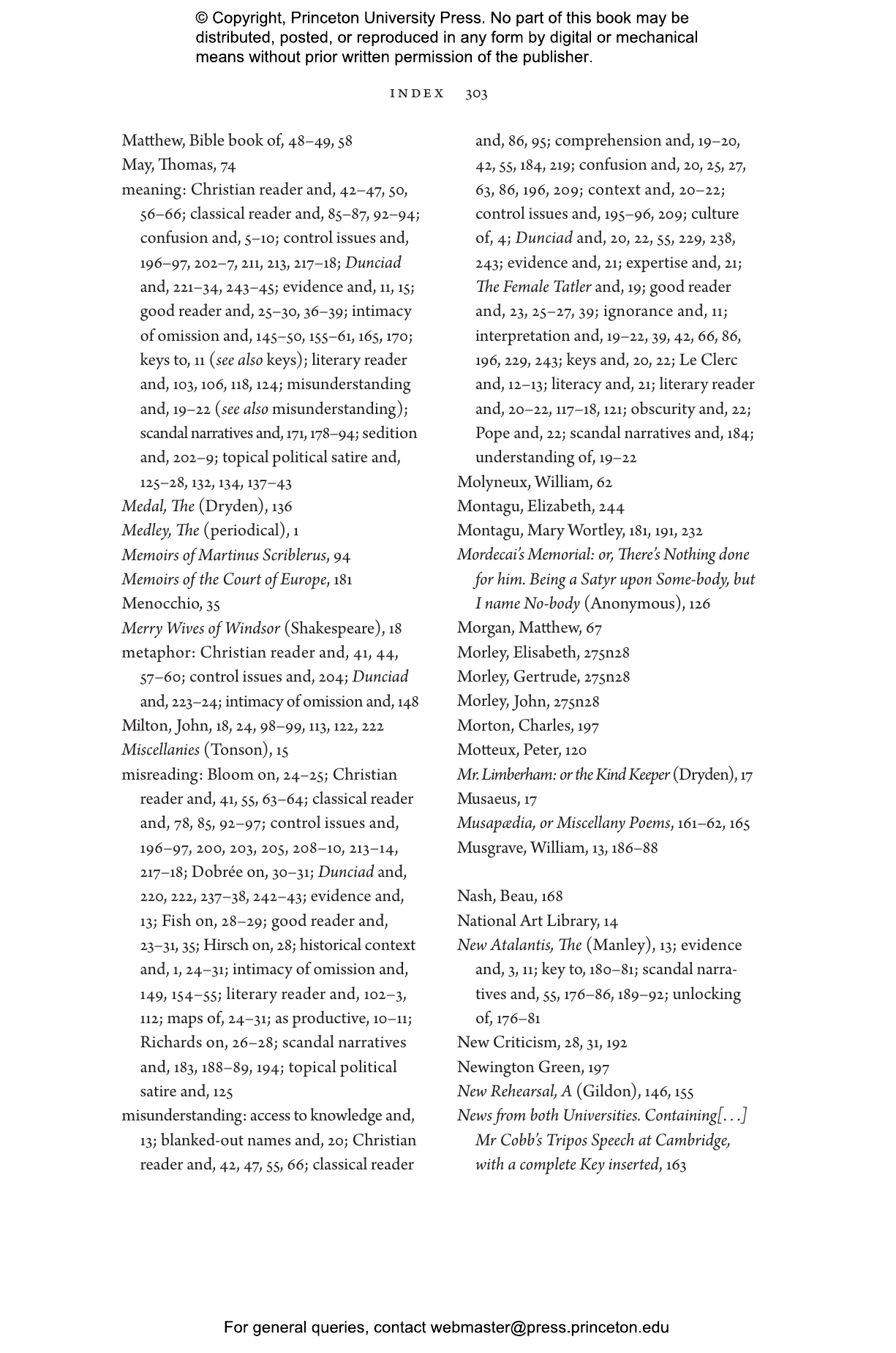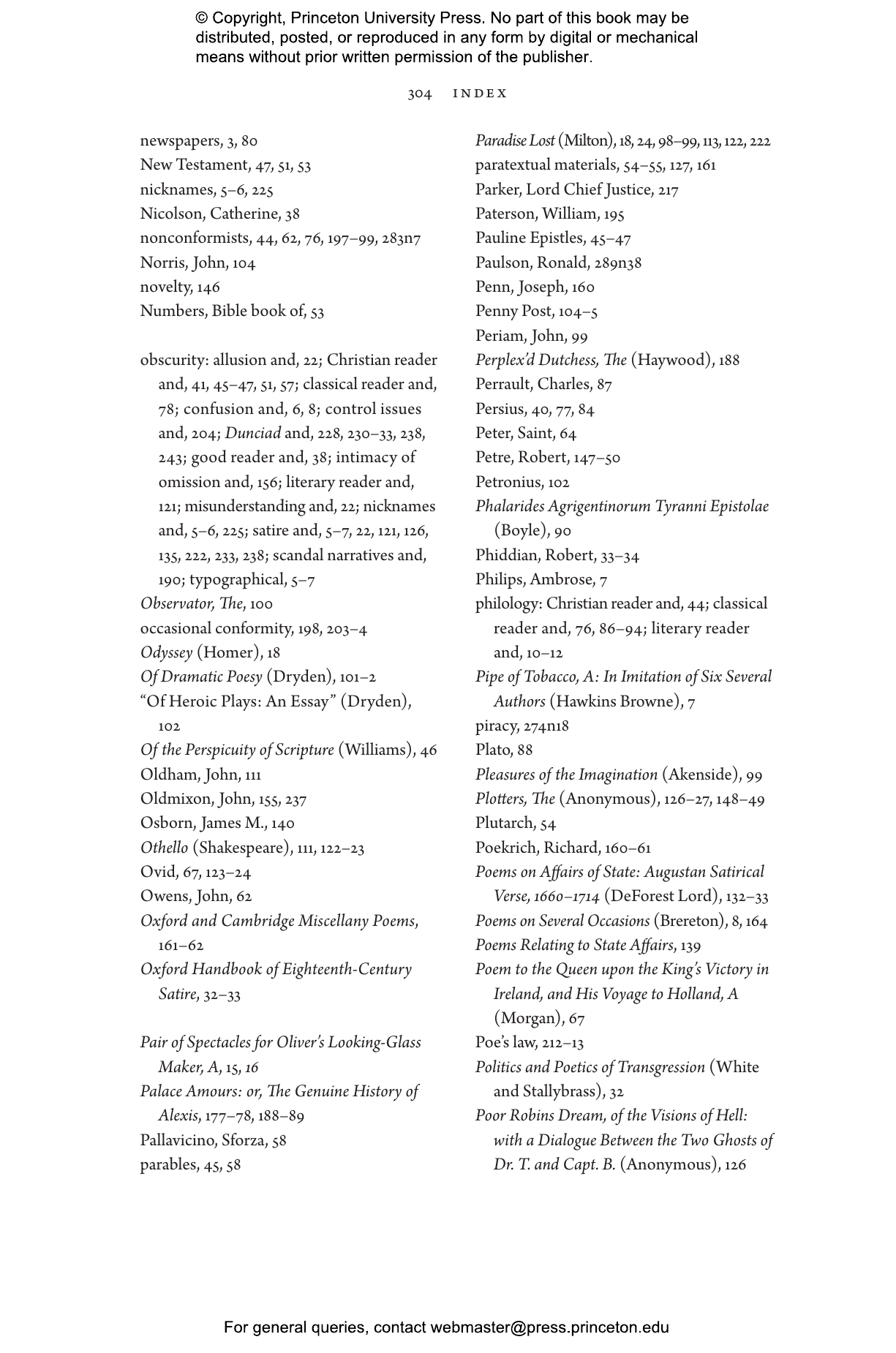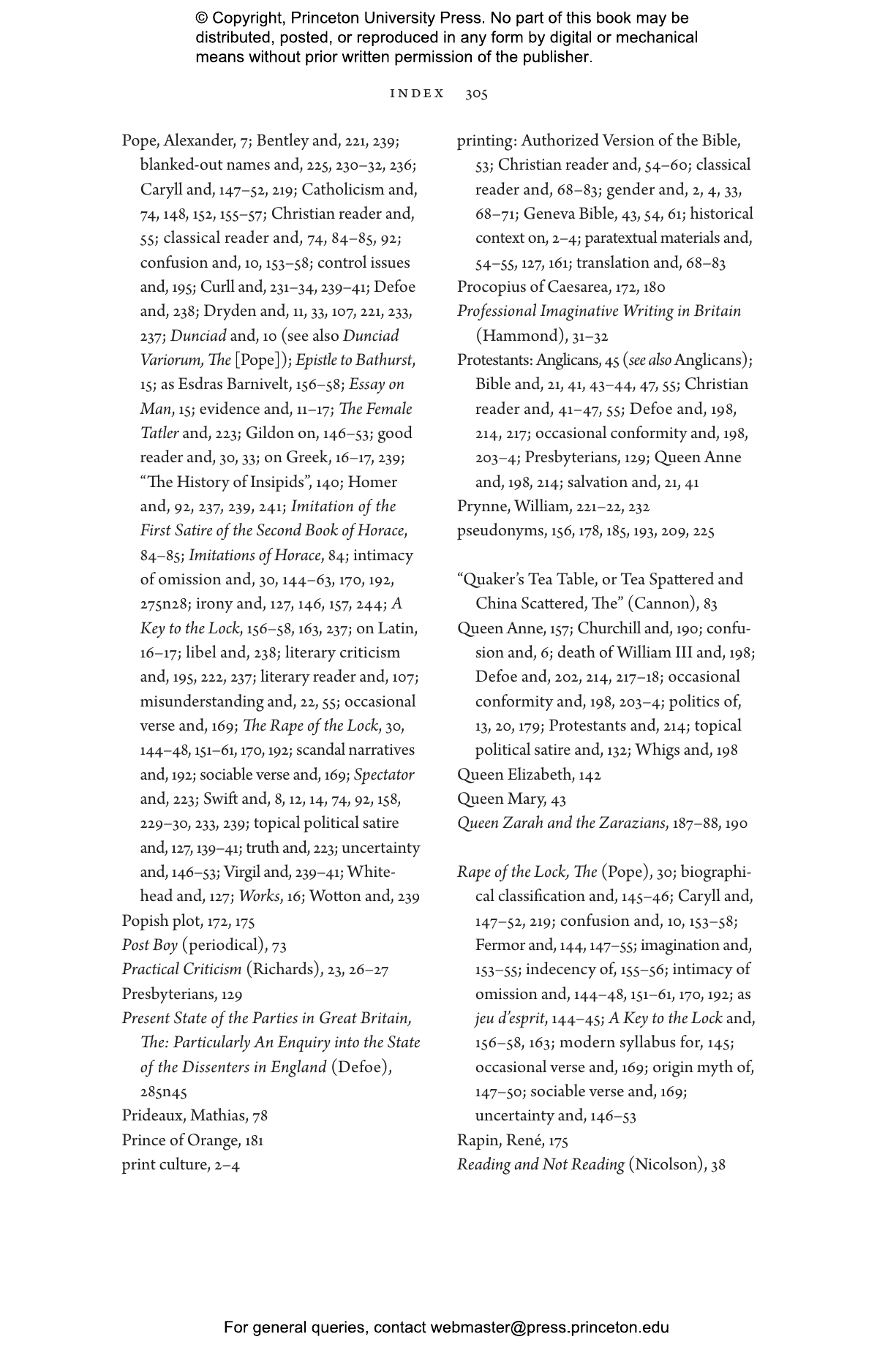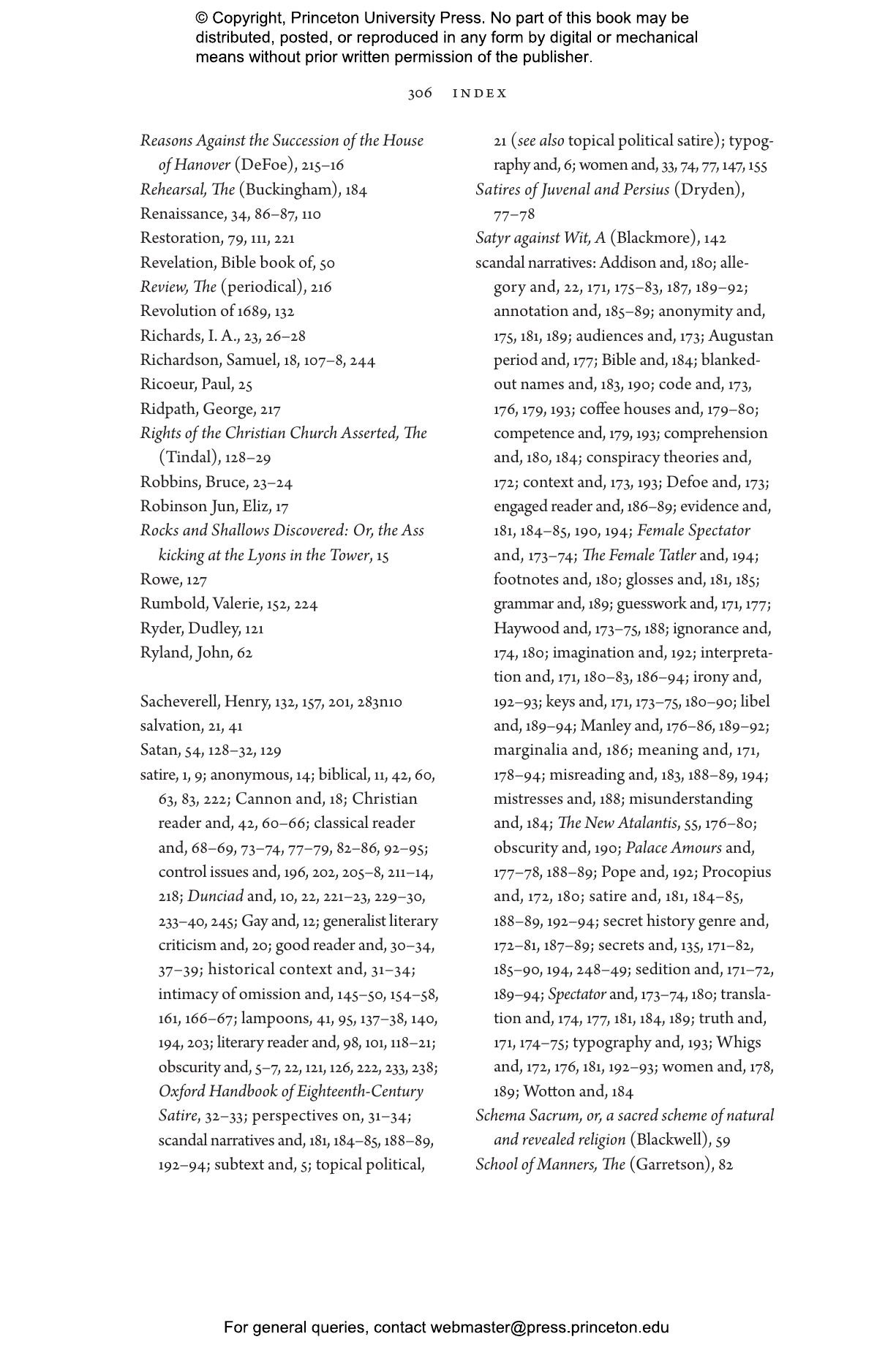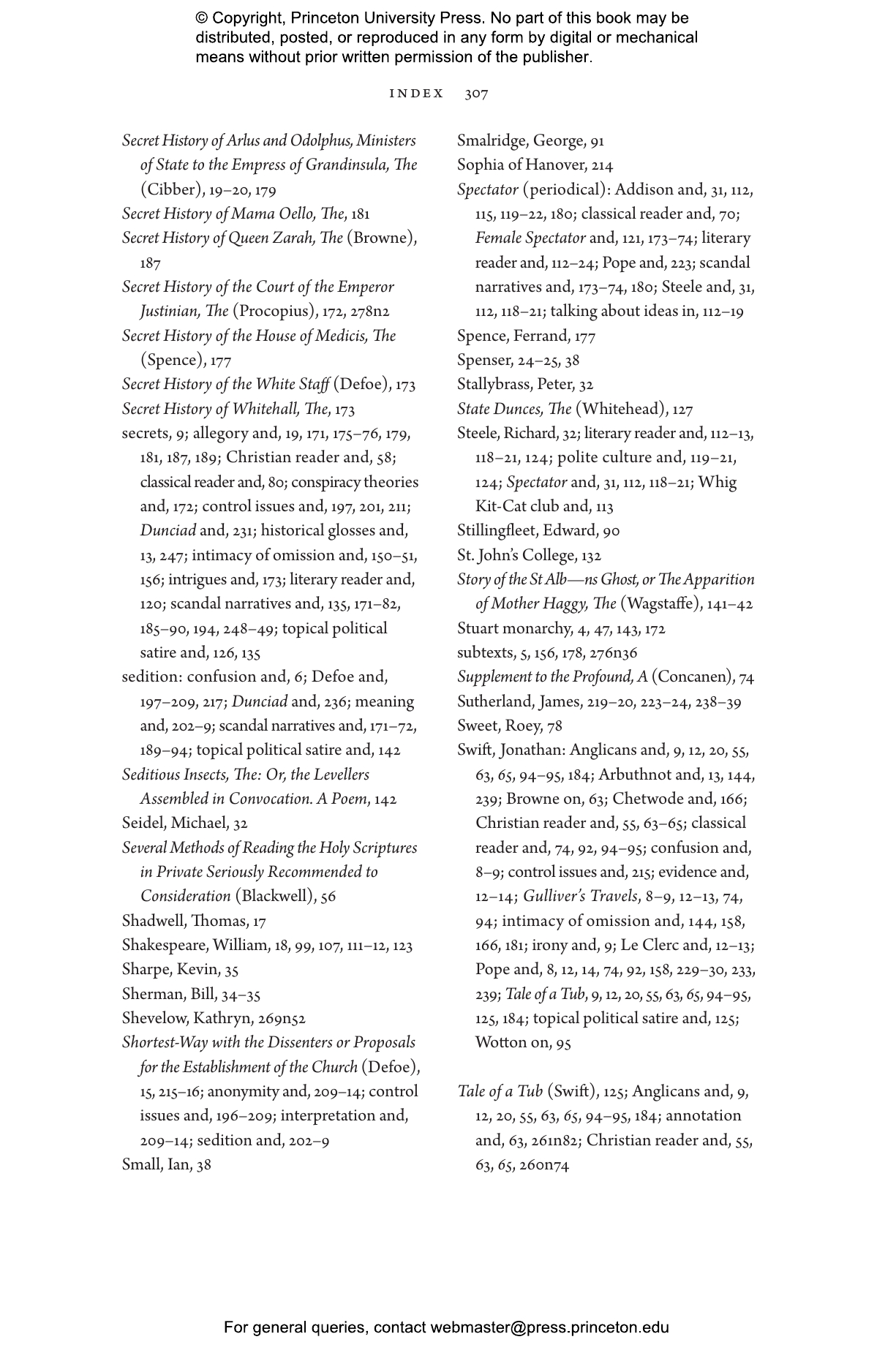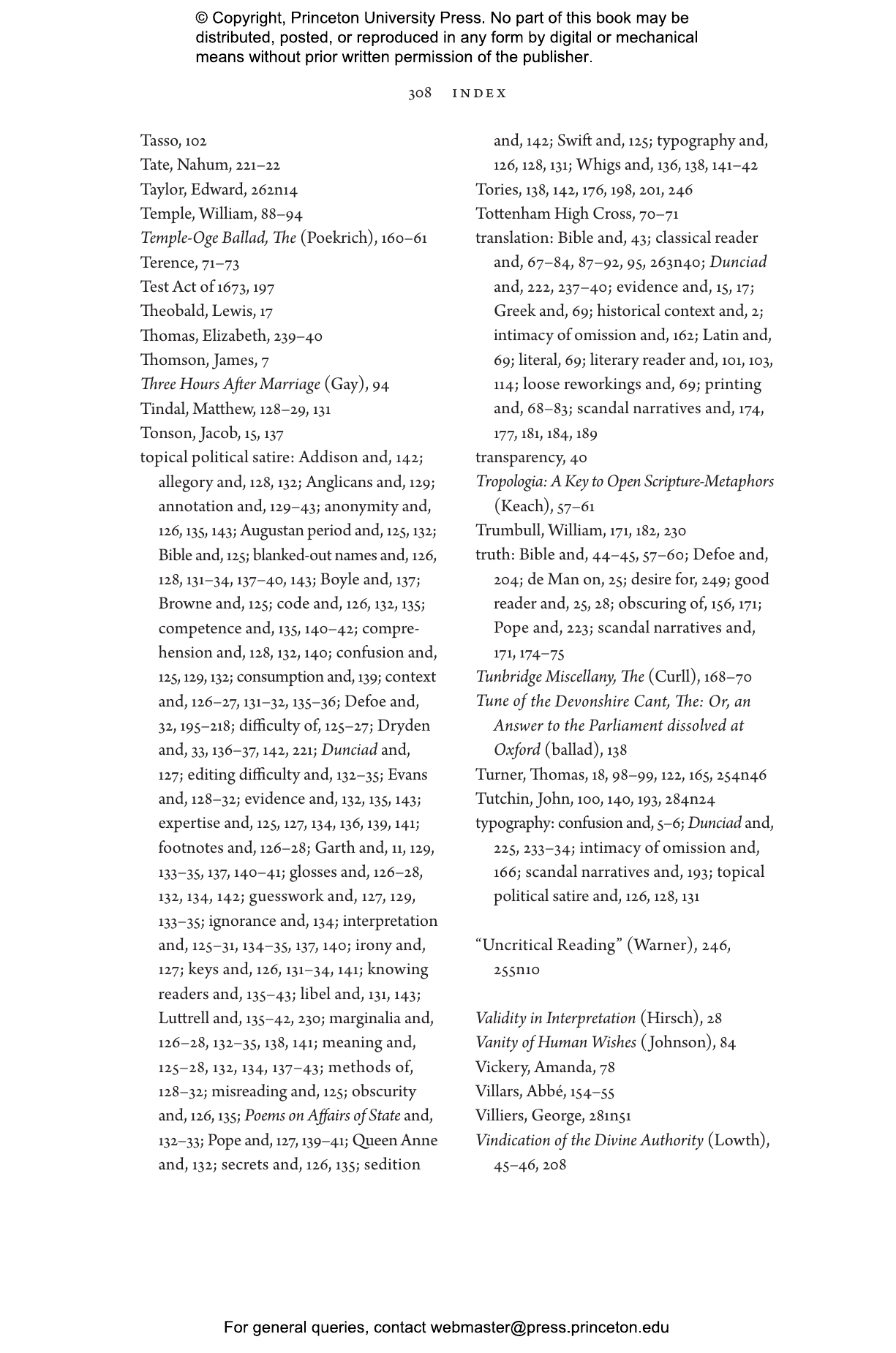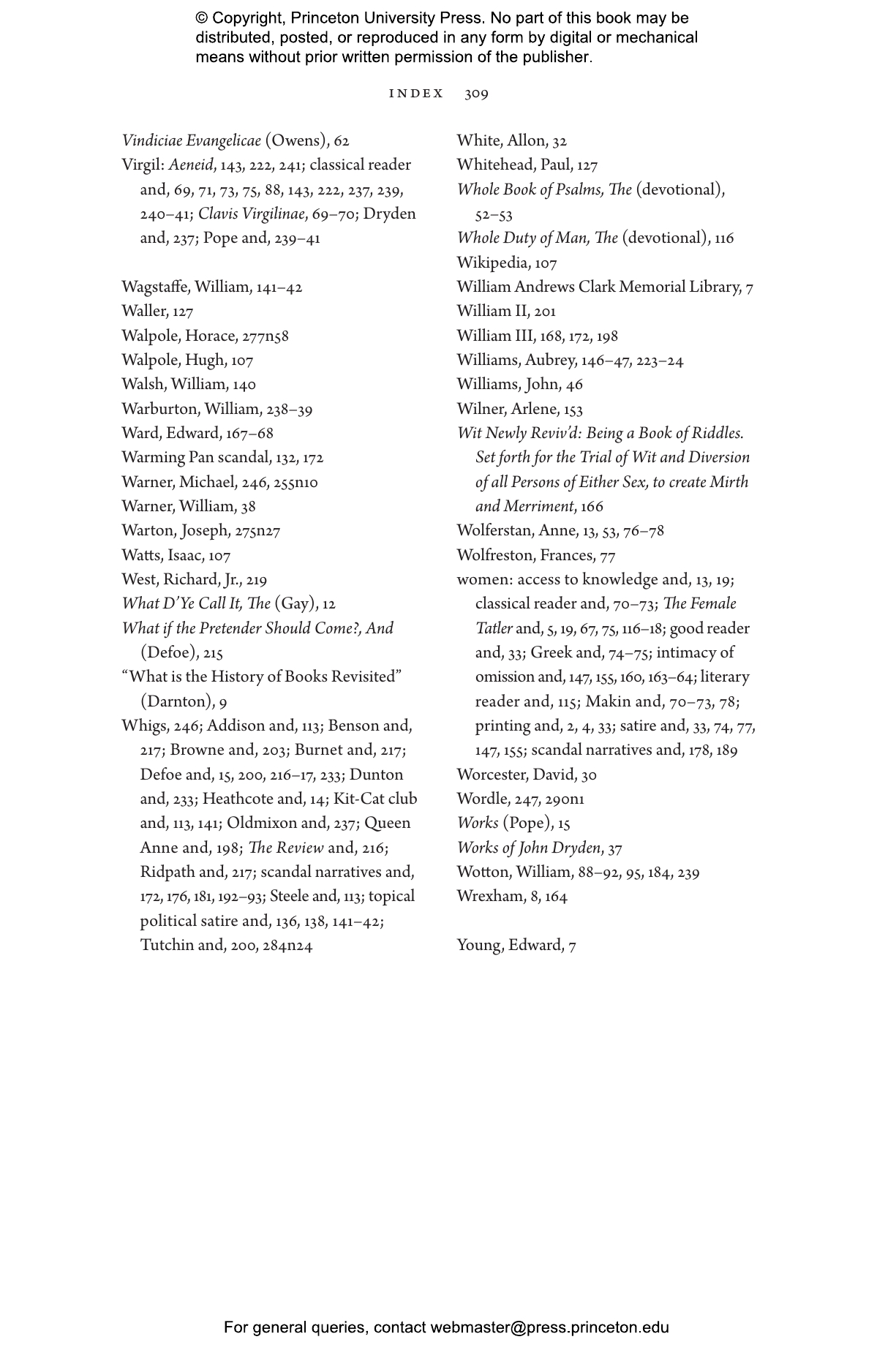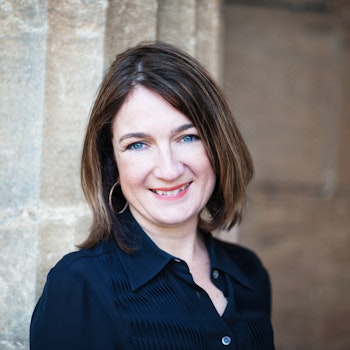Reading It Wrong is a new history of eighteenth-century English literature that explores what has been everywhere evident but rarely talked about: the misunderstanding, muddle and confusion of readers of the past when they first met the uniquely elusive writings of the period. Abigail Williams uses the marginal marks and jottings of these readers to show that flawed interpretation has its own history—and its own important role to play—in understanding how, why and what we read.
Focussing on the first half of the eighteenth century, the golden age of satire, Reading It Wrong tells how a combination of changing readerships and fantastically tricky literature created the perfect grounds for puzzlement and partial comprehension. Through the lens of a history of imperfect reading, we see that many of the period’s major works—by writers including Daniel Defoe, Eliza Haywood, Mary Wortley Montagu, Alexander Pope and Jonathan Swift—both generated and depended upon widespread misreading. Being foxed by a satire, coded fiction or allegory was, like Wordle or the cryptic crossword, a form of entertainment, and perhaps a group sport. Rather than worrying that we don’t have all the answers, we should instead recognize the cultural importance of not knowing.
"[A] sharp study. . . . The thorough research—drawn largely from margin annotations, letters, and journals—impresses, illuminating the dynamic ways an expanding readership made sense of Augustan literature. English scholars will find much to ponder."—Publishers Weekly
"Reading It Wrong sounds like a book reviewer’s nightmare, but I’ve come to trust the scholar Abigail Williams. . . . By examining letters, diaries and marginalia, Williams demonstrates that those original ‘imperfect readers’ were awash in ‘a particularly acute sense of puzzlement and confusion.’ But this bafflement wasn’t a bug; it was a feature of dynamic and interactive works of literature."—Ron Charles, Washington Post
"[Reading It Wrong] can be read with profit and pleasure—especially on account of the original archival research."—Choice Reviews
"[A] brilliantly astute and deeply learned alternative history of early eighteenth-century English literature."—Paul Sabor, Voltaire Foundation
"[A] fine history of readerly misprision."—Thomas Keymer, London Review of Books
"[Reading It Wrong] presents. . . a new framework for considering eighteenth-century literature. . . . Compelling."—LuElla D'Amico, Current
"A really important book, Reading it Wrong should be THE introductory book assigned to every student of the 18th century, and required reading for all those scholars who have based so much on the quicksand of a false premise."—Cliff Cunningham, Sun News Austin
"Thoughtful, well-researched, and ambitious."—Melanie Holm, Eighteenth-Century Fiction
"An original and empirically based account of the early eighteenth century’s culture of textual interpretation. . . . If it is not primarily our historical distance that makes these texts difficult to penetrate, then perhaps the confusion that typifies students’ encounters with this corpus, often experienced as a barrier, can be reframed as a source of knowledge, or even connection with the past. The upshot of such a reconfiguration of expectations for today’s readers is powerful, especially when explicated and authorized by one of the field’s foremost scholarly voices."—Alexis Chema, Modern Philology
"The clarity, erudition, and accessibility of Reading It Wrong will delight and illuminate. . . . [this book] is a pleasure to read."—Rebecca Anne Barr, English: Journal of the English Association
“Rarely does one encounter such a brilliant combination of scholarly erudition and incisive literary analysis. Reading It Wrong is a splendid and deeply original book: one of the most important works in eighteenth-century studies for quite some time.”—Joseph Hone, author of The Paper Chase: The Printer, the Spymaster, and the Hunt for the Rebel Pamphleteers
“An exciting, perceptive and original study of a subject at the heart of our understanding of eighteenth-century British literature—how we read it, learn about it and teach it—questions that have never before been this directly, generously and comprehensively considered.”—James Noggle, Wellesley College
“Reading It Wrong is engaging, well-informed and interesting, as I’d expect given Abigail Williams’s position as one of the most knowledgeable literary historians of early eighteenth-century England. The rigor of her scholarly background is present in the considerable skill and light touch she brings to writing about texts both at the center and the margins of canonical literary culture.”—Sophie Gee, Princeton University
“Reading It Wrong is deeply immersed not only in the archives and marginalia of the eighteenth century, but also in the critical trends of our own time. Abigail Williams’s book, assuming I have read it right, takes our own anxieties about stratified readerships, the push-pull of paternalism and elitism and professional squeamishness around ‘relatable’ readings, and finds these all alive and kicking at the dawn of the age of print saturation.”—Dennis Duncan, author of Index, A History of the
